Ron Howard Quotes


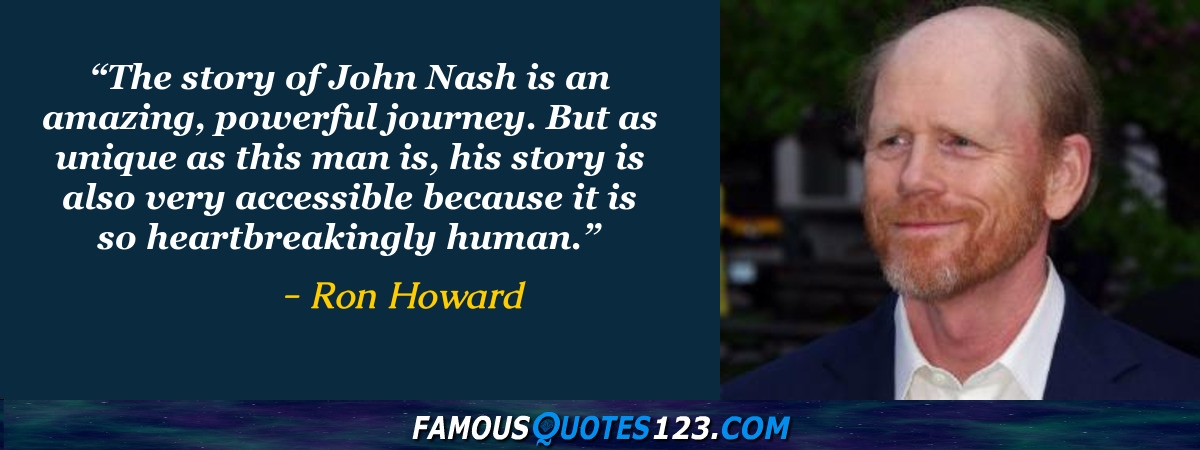
The story of John Nash is an amazing, powerful journey. But as unique as this man is, his story is also very accessible because it is so heartbreakingly human.
I love leaving the door open to good ideas. I love the collaborative swirl. I get charged by problem-solving, usually under some kind of stress - the sun is going down, and we have eight minutes, and we have to solve it. Great things come out of it.
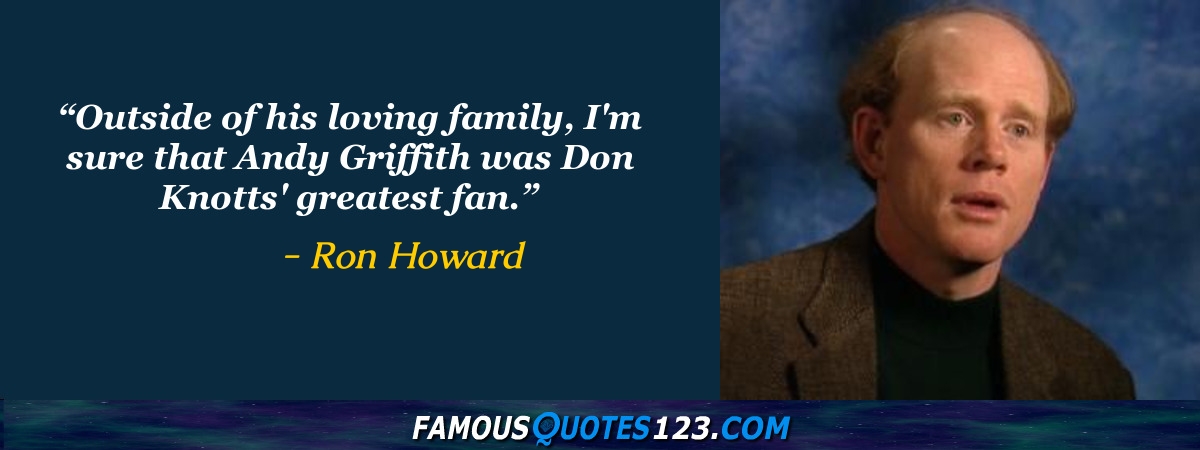
Outside of his loving family, I'm sure that Andy Griffith was Don Knotts' greatest fan.
Instead of candidates hiring people, like yours truly, to create campaign media that works on both conscious and subconscious levels to sway the voting public, what if all TV ads were, by law, only allowed to feature the candidate, with, say, the American flag as the backdrop, alone, speaking directly to the camera?
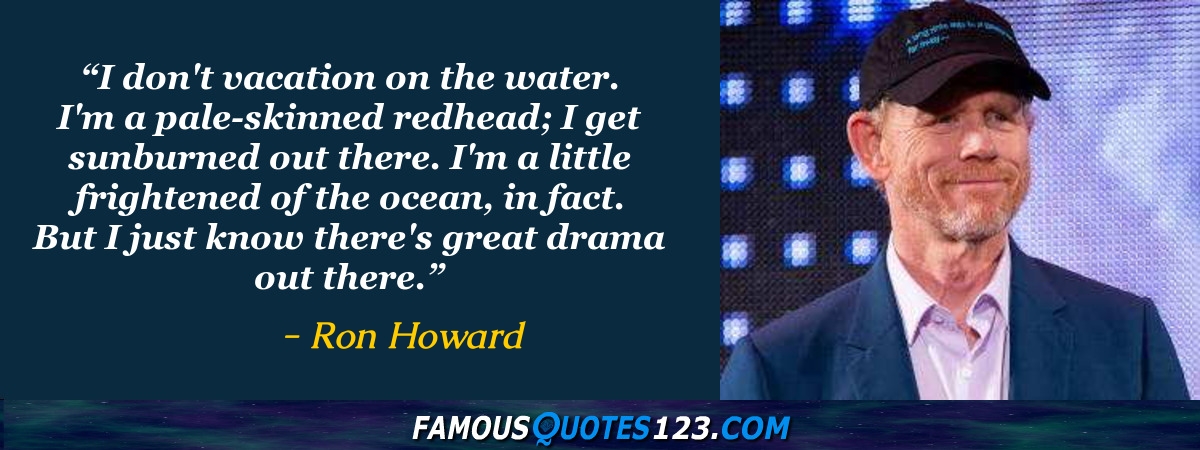
I don't vacation on the water. I'm a pale-skinned redhead; I get sunburned out there. I'm a little frightened of the ocean, in fact. But I just know there's great drama out there.
I think it's in our nature to try to get beyond that next horizon. I think that when we, as a species, are scratching that itch, we're actually following an evolutionary compulsion that is wired into us. I think good things come of it.
I have very close friends who are very devout Catholics, and I talked to them before the 'Da Vinci Code,' and it was very difficult for them, but I talked to them before 'Angels and Demons,' and they said the scandal, abuse of power and violence was part of church history, which you can read about in the Vatican bookstore.
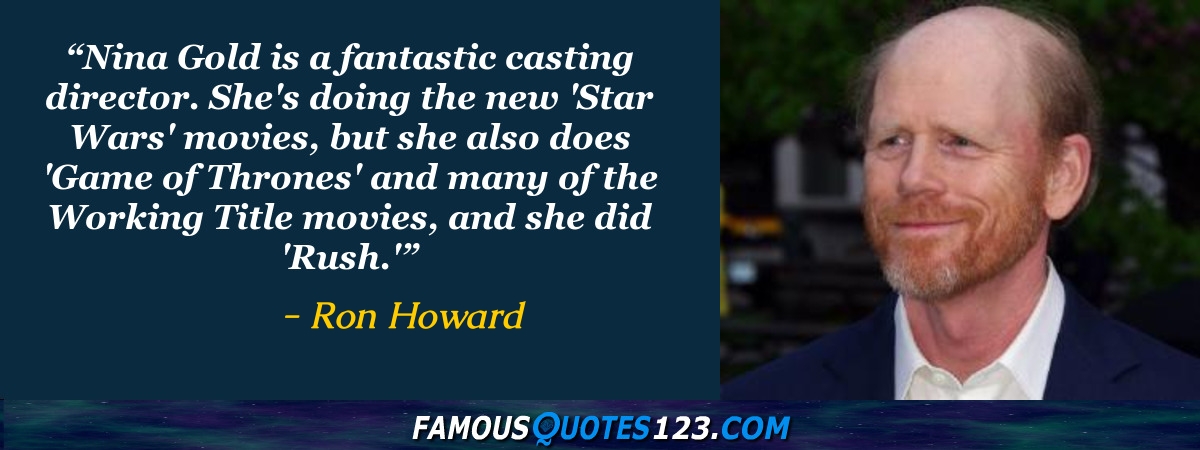
Nina Gold is a fantastic casting director. She's doing the new 'Star Wars' movies, but she also does 'Game of Thrones' and many of the Working Title movies, and she did 'Rush.'
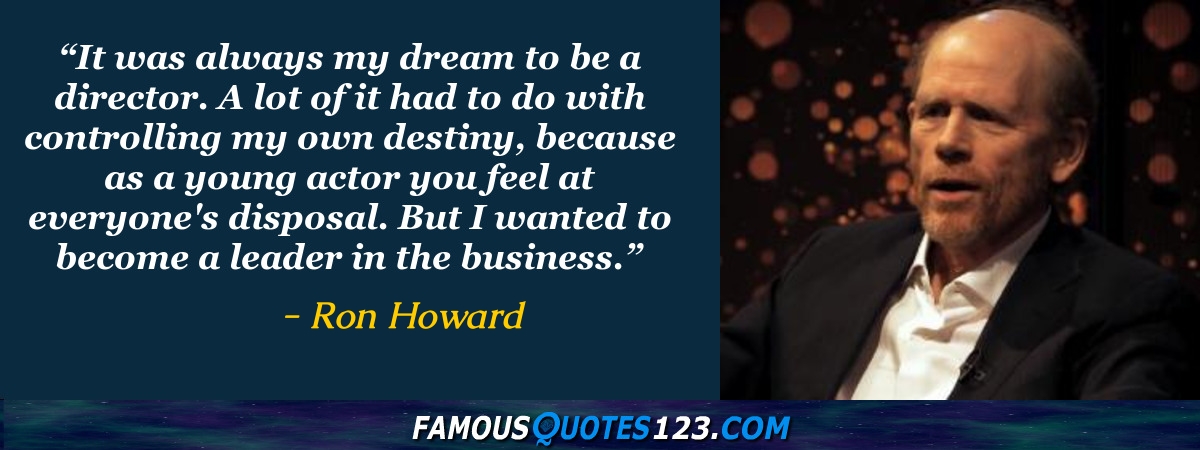
It was always my dream to be a director. A lot of it had to do with controlling my own destiny, because as a young actor you feel at everyone's disposal. But I wanted to become a leader in the business.
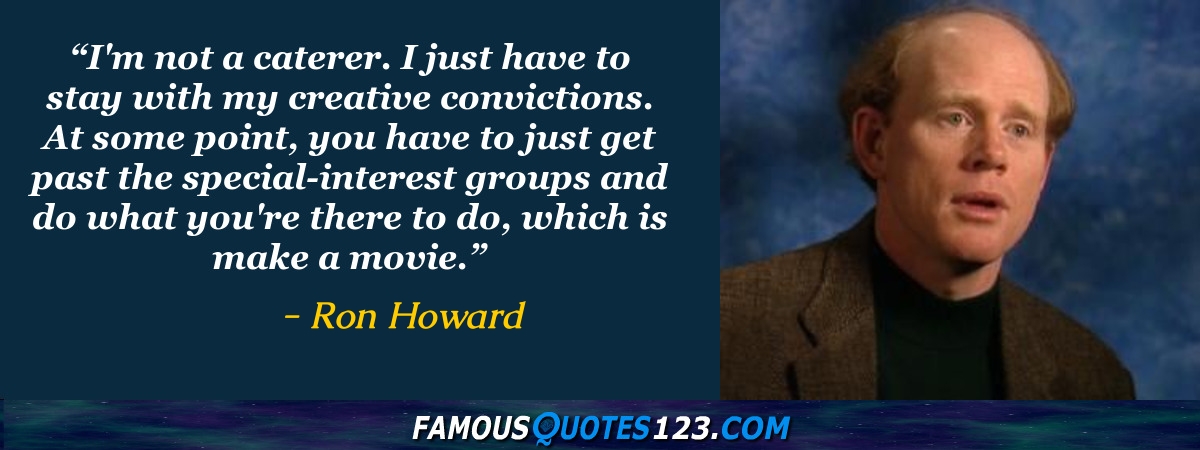
I'm not a caterer. I just have to stay with my creative convictions. At some point, you have to just get past the special-interest groups and do what you're there to do, which is make a movie.
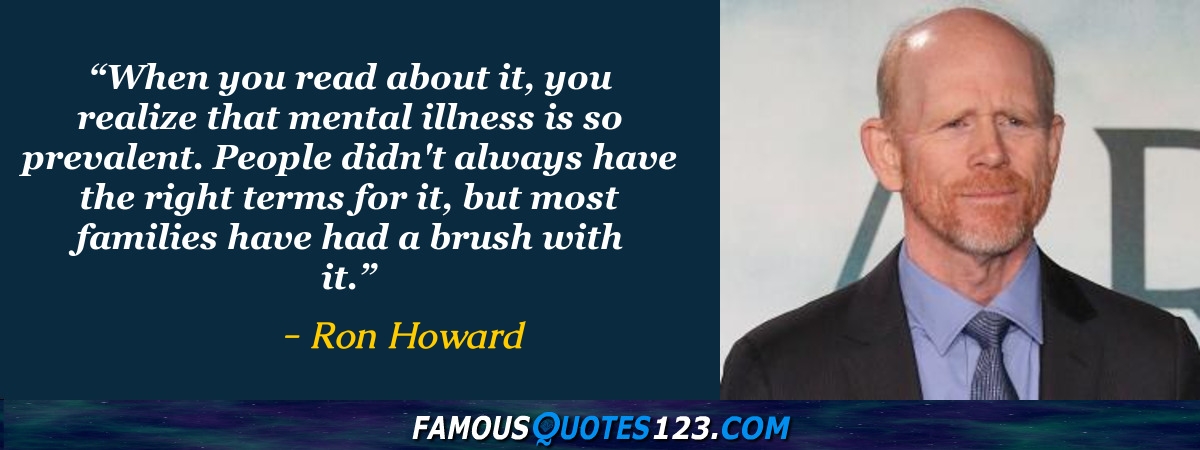
When you read about it, you realize that mental illness is so prevalent. People didn't always have the right terms for it, but most families have had a brush with it.
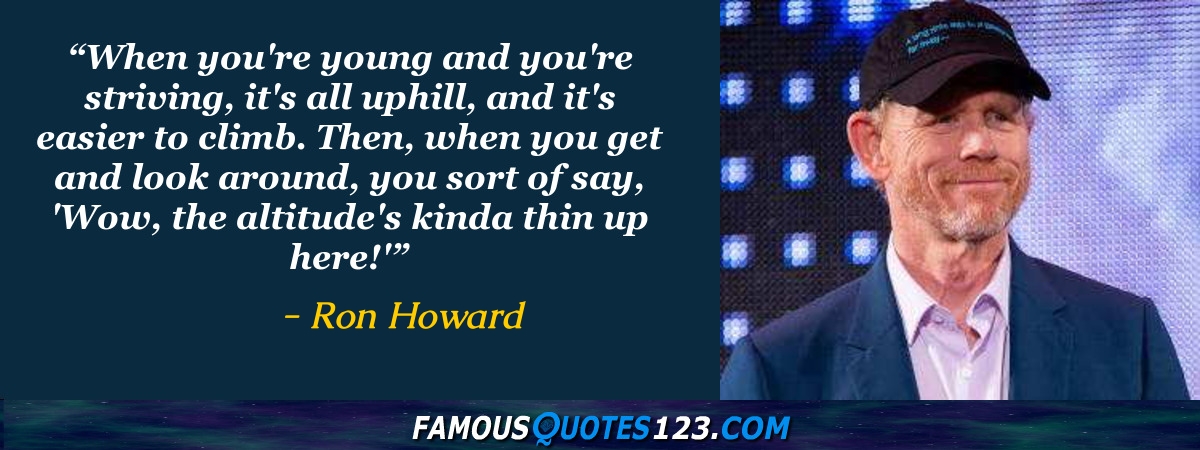
When you're young and you're striving, it's all uphill, and it's easier to climb. Then, when you get and look around, you sort of say, 'Wow, the altitude's kinda thin up here!'
Early in the second season of 'The Andy Griffith Show,' I ventured a suggestion for a line change to make it sound more 'like the way a kid would say it.' I was just 7 years old. But my idea was accepted, and I remember standing frozen, thrilled at what this moment represented to me.
When 'Apollo 13' appeared as an opportunity and I began to tackle that in as authentic a way as I possibly could, I really became enthralled by the philosophical side of space travel and why we need to explore - what it means to us here on Earth - all of those things. I became a huge proponent.
Anytime you really take a close look at people who are dealing with the aging process, you're going to have a complicated reaction to what you're seeing and feeling. If you're in the middle of it, those emotions are going to be quadrupled. It's immediate, it's relatable, so it's good human drama.
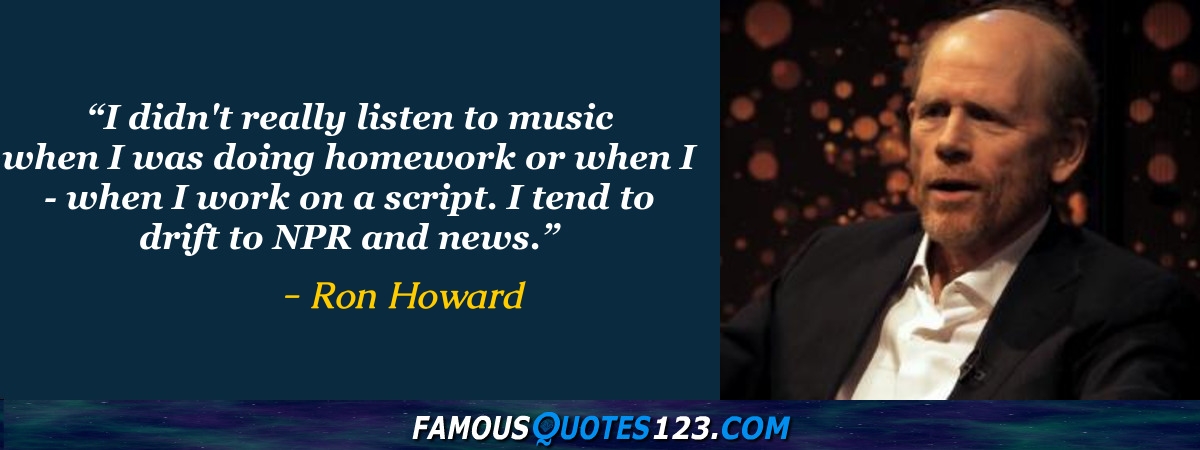
I didn't really listen to music when I was doing homework or when I - when I work on a script. I tend to drift to NPR and news.
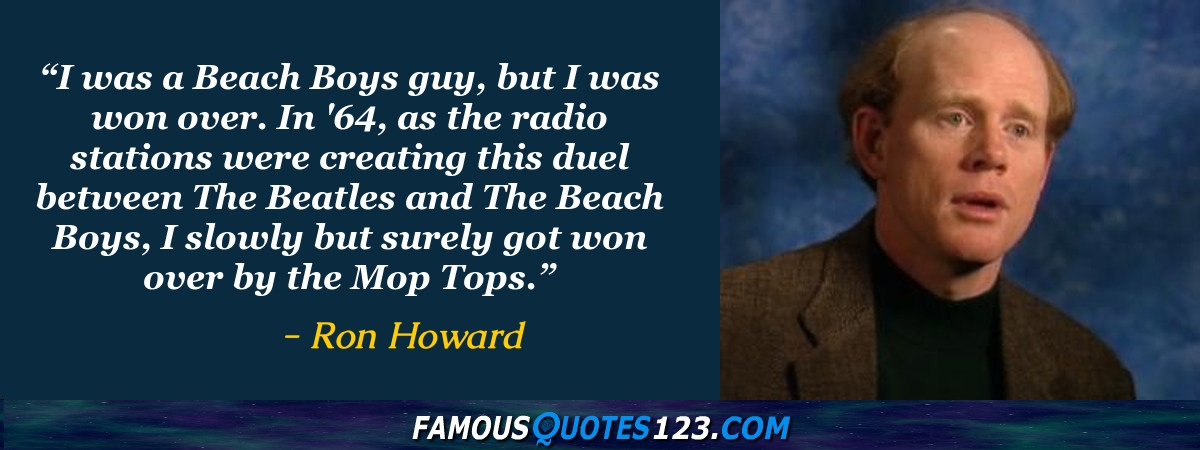
I was a Beach Boys guy, but I was won over. In '64, as the radio stations were creating this duel between The Beatles and The Beach Boys, I slowly but surely got won over by the Mop Tops.
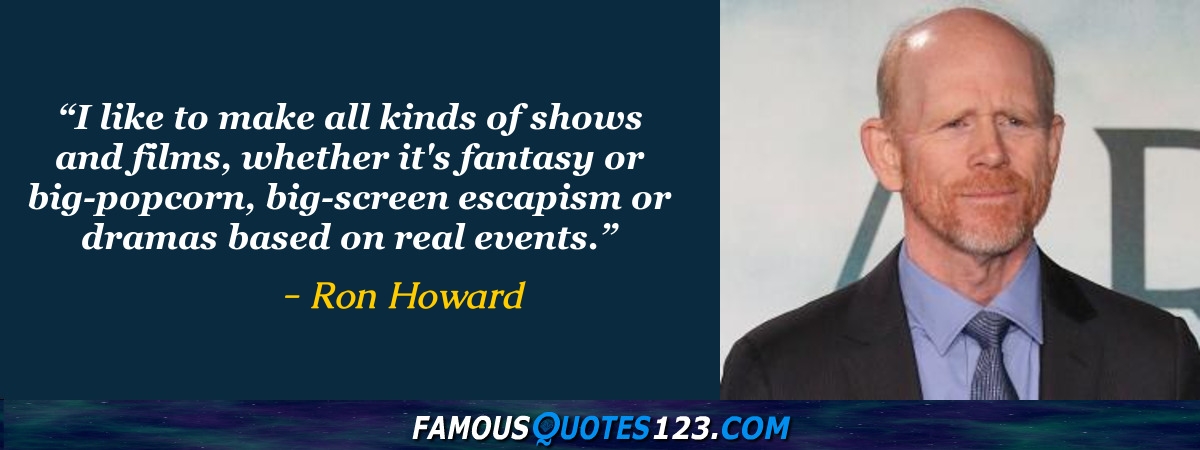
I like to make all kinds of shows and films, whether it's fantasy or big-popcorn, big-screen escapism or dramas based on real events.
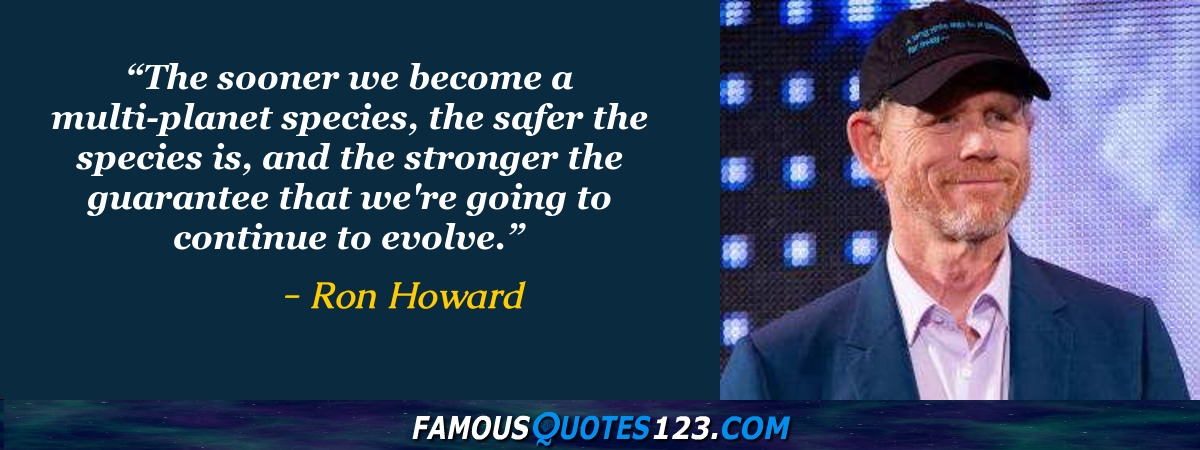
The sooner we become a multi-planet species, the safer the species is, and the stronger the guarantee that we're going to continue to evolve.
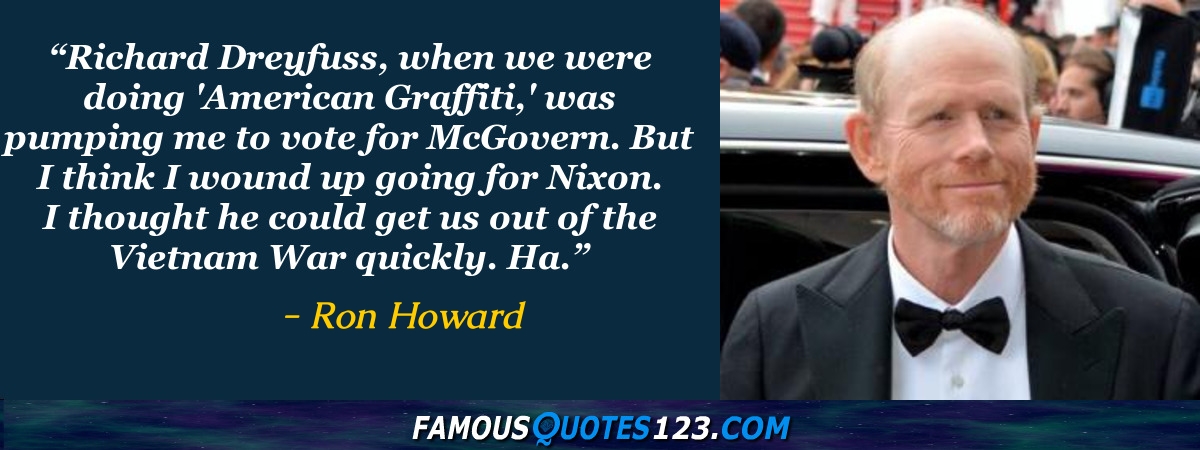
Richard Dreyfuss, when we were doing 'American Graffiti,' was pumping me to vote for McGovern. But I think I wound up going for Nixon. I thought he could get us out of the Vietnam War quickly. Ha.
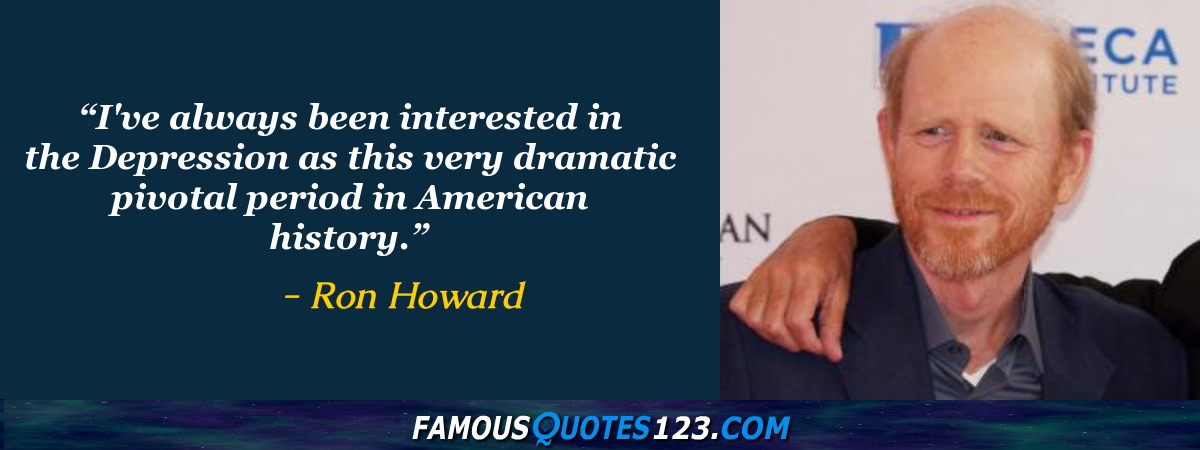
I've always been interested in the Depression as this very dramatic pivotal period in American history.
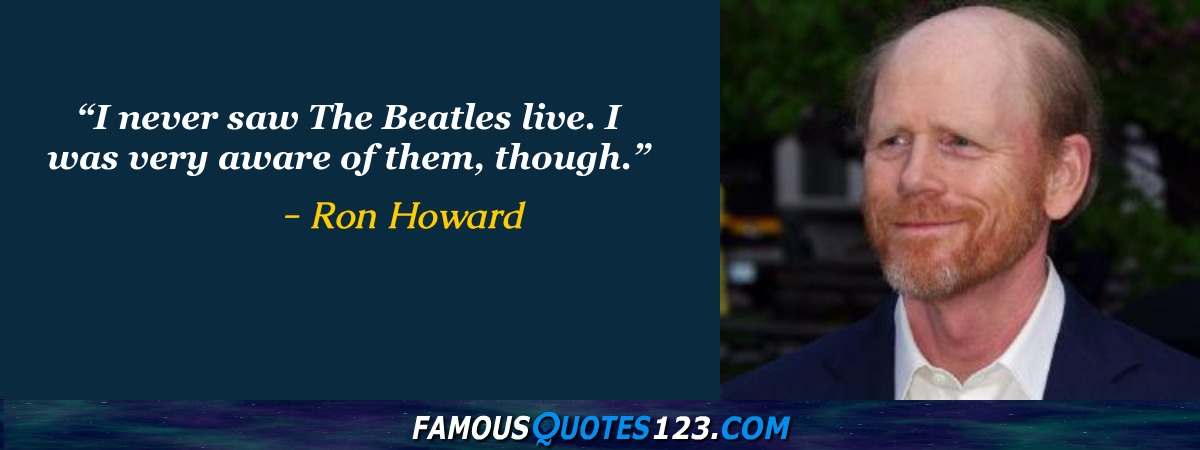
I never saw The Beatles live. I was very aware of them, though.
Whatever your political leaning, vote. This participation is vital. I feel the same way about issues like the space program, education, the military. The more the public focuses on these things, thinks and forms opinions, I think the better we are as a democracy.
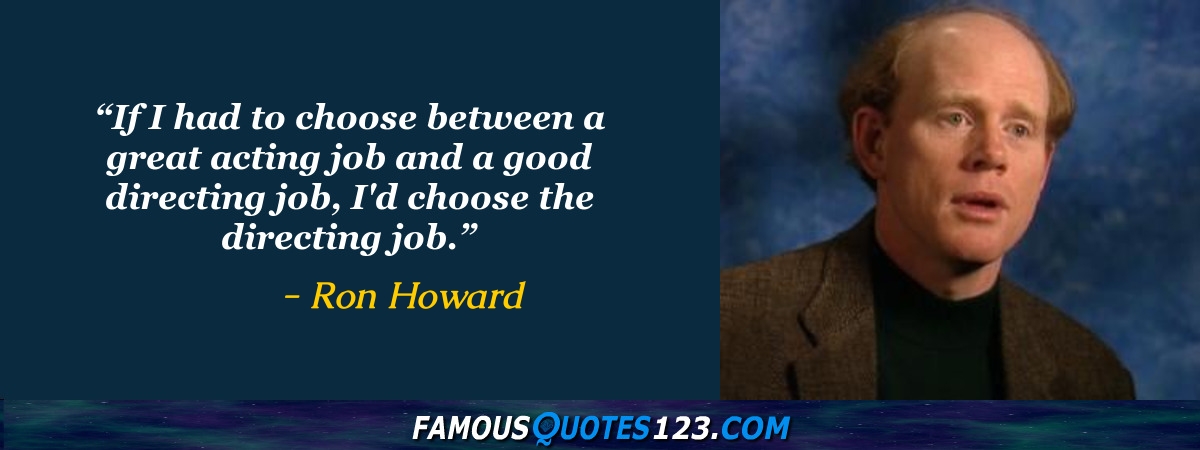
If I had to choose between a great acting job and a good directing job, I'd choose the directing job.
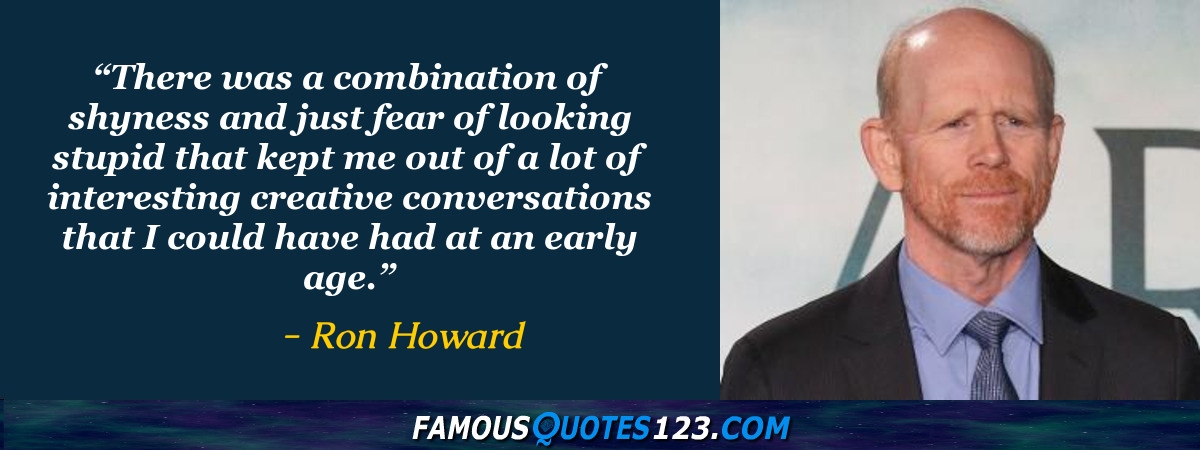
There was a combination of shyness and just fear of looking stupid that kept me out of a lot of interesting creative conversations that I could have had at an early age.
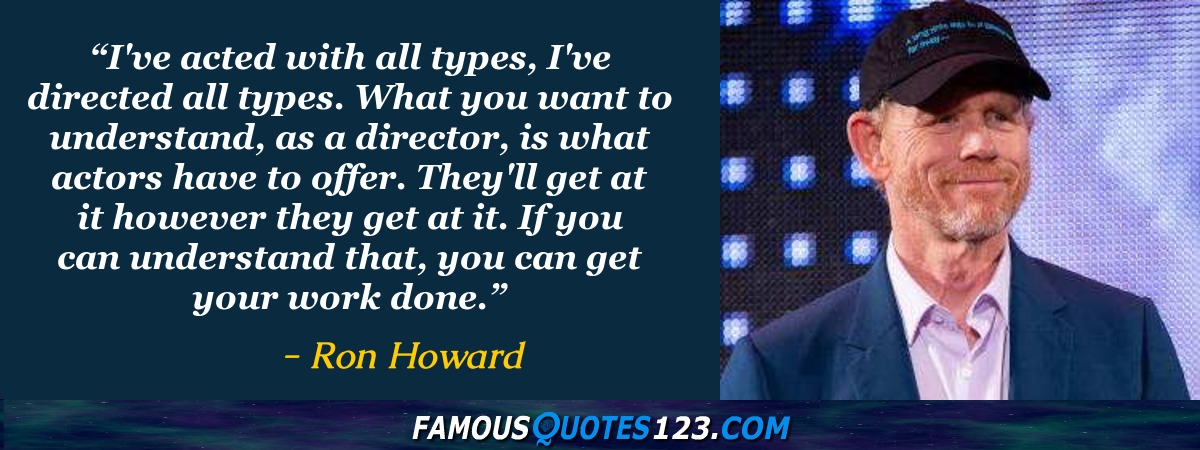
I've acted with all types, I've directed all types. What you want to understand, as a director, is what actors have to offer. They'll get at it however they get at it. If you can understand that, you can get your work done.
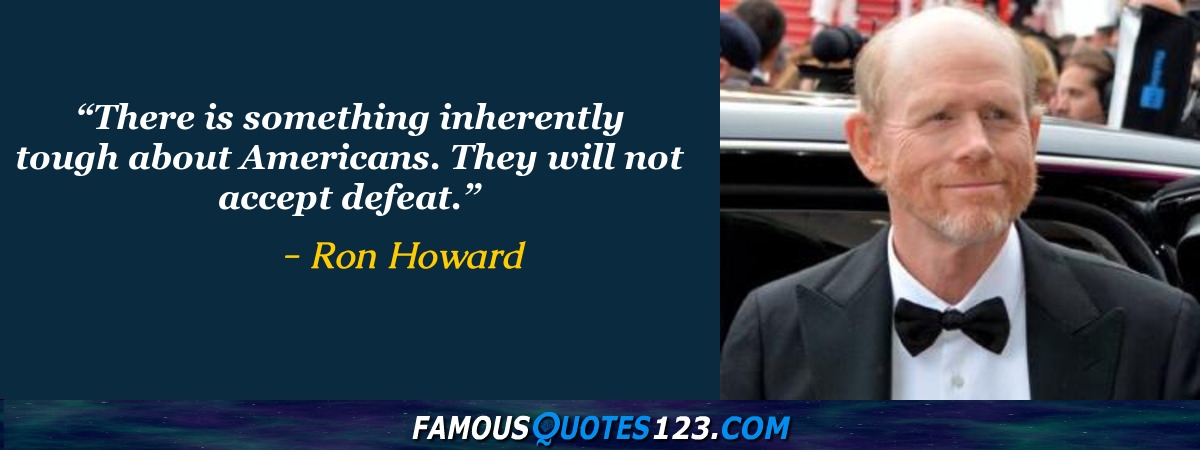
There is something inherently tough about Americans. They will not accept defeat.
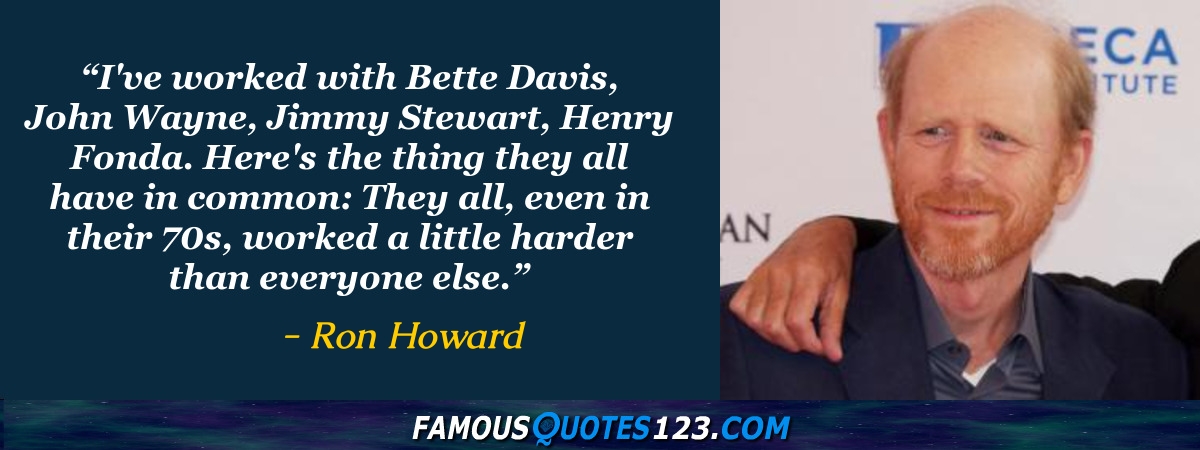
I've worked with Bette Davis, John Wayne, Jimmy Stewart, Henry Fonda. Here's the thing they all have in common: They all, even in their 70s, worked a little harder than everyone else.
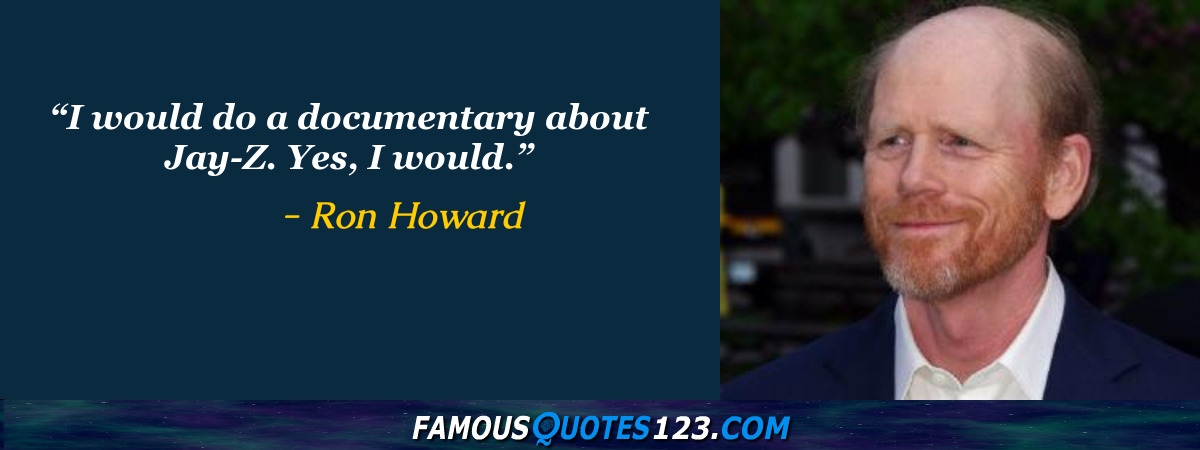
I would do a documentary about Jay-Z. Yes, I would.
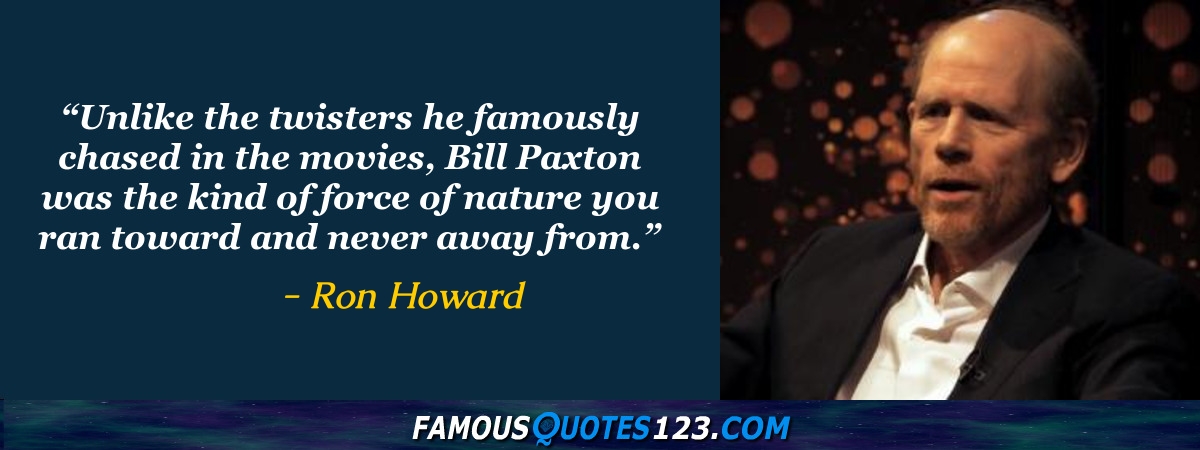
Unlike the twisters he famously chased in the movies, Bill Paxton was the kind of force of nature you ran toward and never away from.
I used to feel that I had to be dictatorial in order to be respected, but after I did a couple of TV movies, I began to see that authority came with the job. So I began to relax and let more people into the process, and my work really improved.
Everything's always about page-turning, right? What's next? So, if you create questions for audiences, then they'll want to know the answer. Or they begin to formulate possible outcomes. That's the game we play when we're hearing a story unfold. That's part of what sucks us into a movie.
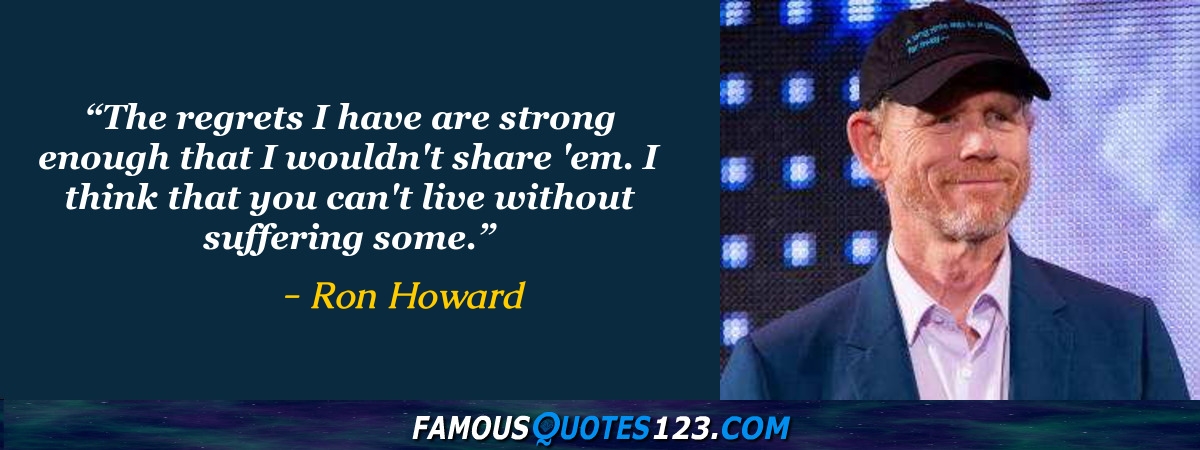
The regrets I have are strong enough that I wouldn't share 'em. I think that you can't live without suffering some.
When you're an actor, you often feel victimized - you see the end result, 'Oh, they didn't use this take; they didn't use that take. How come?' There's no 'How come?' with the director. There's only one person to look at. Walk over to the mirror if you want to know why. But I prefer that.
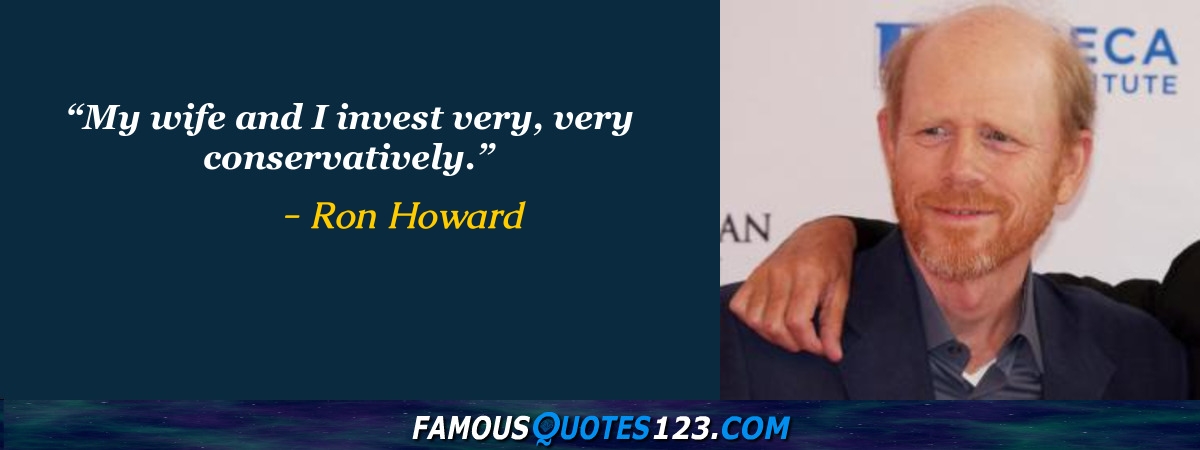
My wife and I invest very, very conservatively.
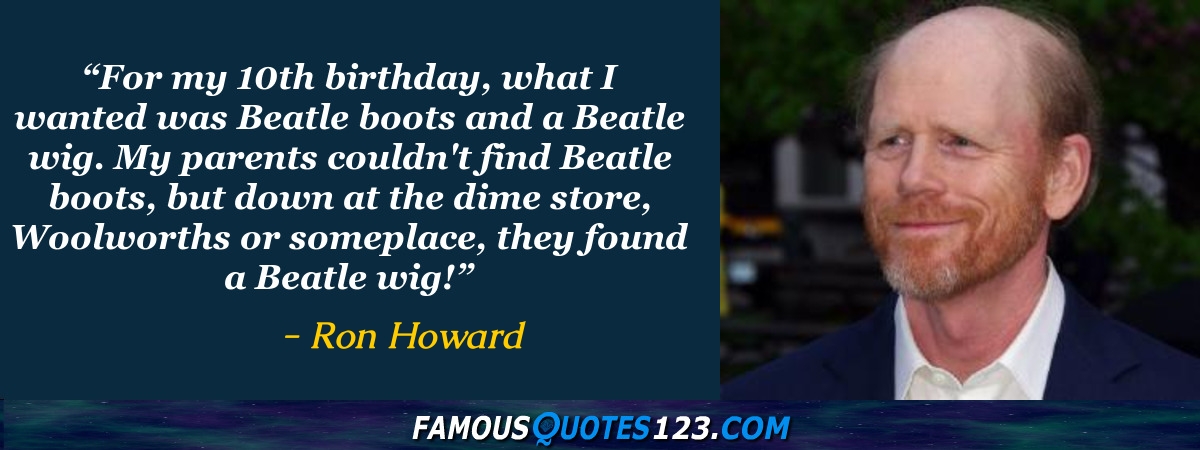
For my 10th birthday, what I wanted was Beatle boots and a Beatle wig. My parents couldn't find Beatle boots, but down at the dime store, Woolworths or someplace, they found a Beatle wig!
Once or twice in the height of 'Happy Days' excitement, which had more to do with Henry Winkler as The Fonz than ever had to do with me, we were kind of like a boy band for a year or so, and we would go out on personal appearances and feel the limousine rocking, and the grabbing at your clothes and people trying to steal your cap.
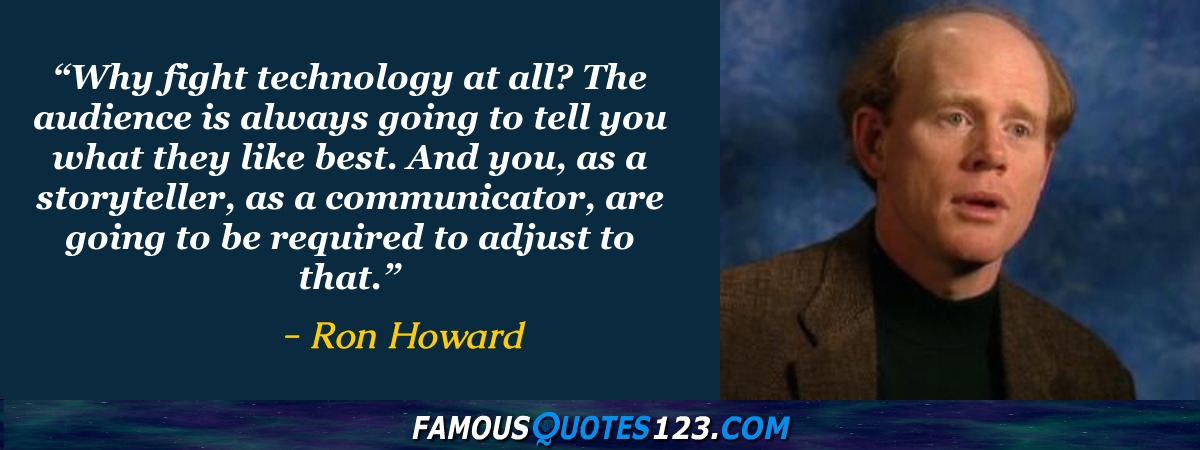
Why fight technology at all? The audience is always going to tell you what they like best. And you, as a storyteller, as a communicator, are going to be required to adjust to that.
You can't expect perfection. It is important to sort of acknowledge some of our imperfections. I write them down. There's something about acknowledging mistakes and being able to put them down on paper; they become facts of your life that you must live with. And then, hopefully, you can navigate the road a little bit better.
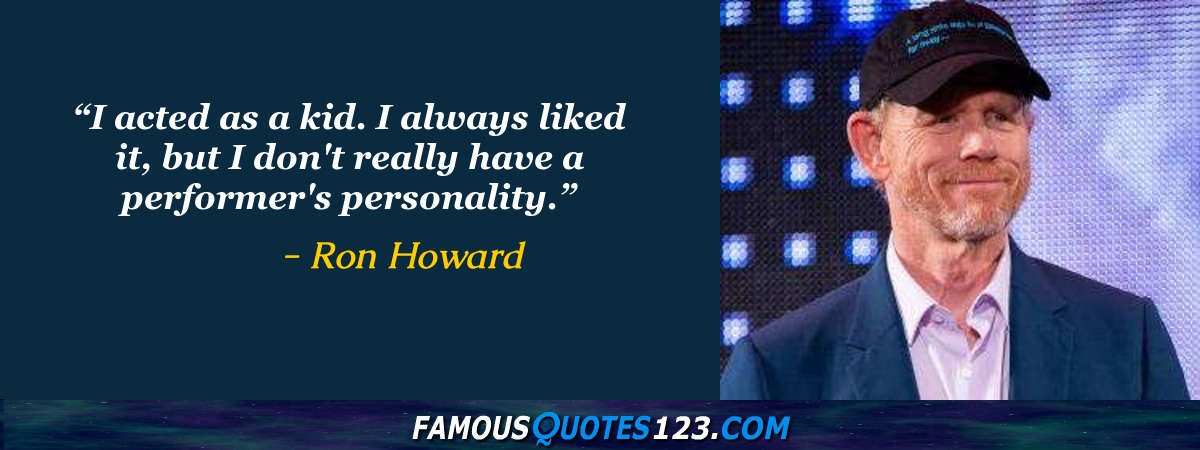
I acted as a kid. I always liked it, but I don't really have a performer's personality.
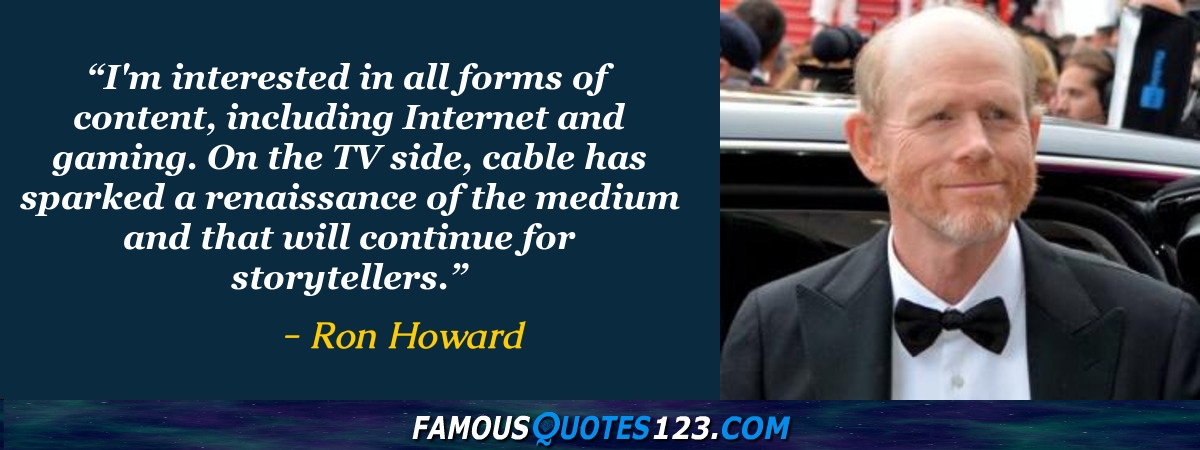
I'm interested in all forms of content, including Internet and gaming. On the TV side, cable has sparked a renaissance of the medium and that will continue for storytellers.
As a director, I've wanted to have adventure in my life, creative adventure. I think it's partly because I grew up, basically from age six to 26, mostly on television series where the producers find something that works and then do it over and over and over again.
I don't choose something unless I think I have a personal understanding and something I can offer. It's not always thematic. I wanted to do 'The Grinch' because I wanted to direct Jim Carrey creating that kind of comic fantasy character live. I just thought that would be a mind-blowing experience, and it creatively was.
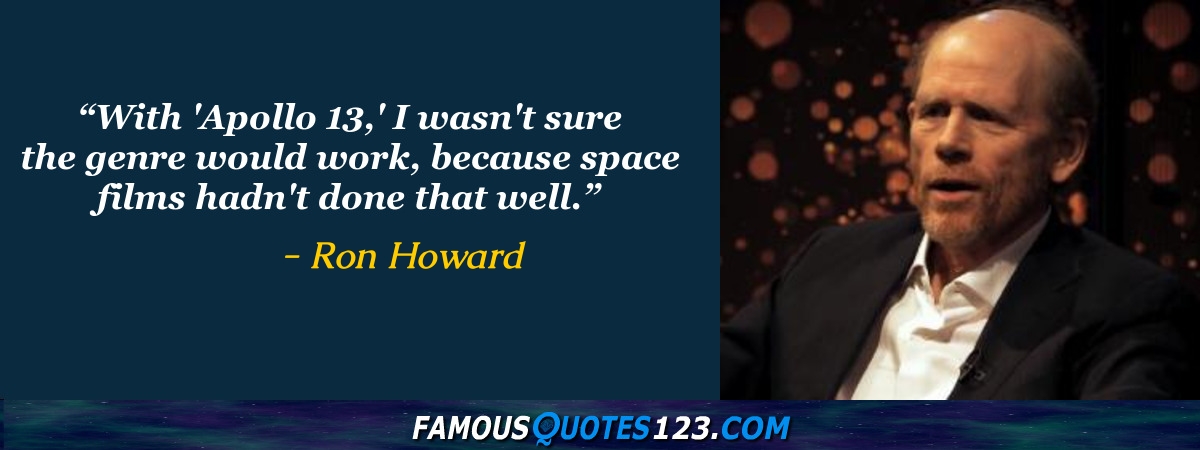
With 'Apollo 13,' I wasn't sure the genre would work, because space films hadn't done that well.
Television, particularly as it becomes more and more serialised, comedies no longer have to tie the stories up neatly within 20-plus minutes. 'Arrested Development' had evolving storylines, as did both versions of 'The Office.' We're seeing that more and more. That allows it to be really, whatever the tone, almost literary.
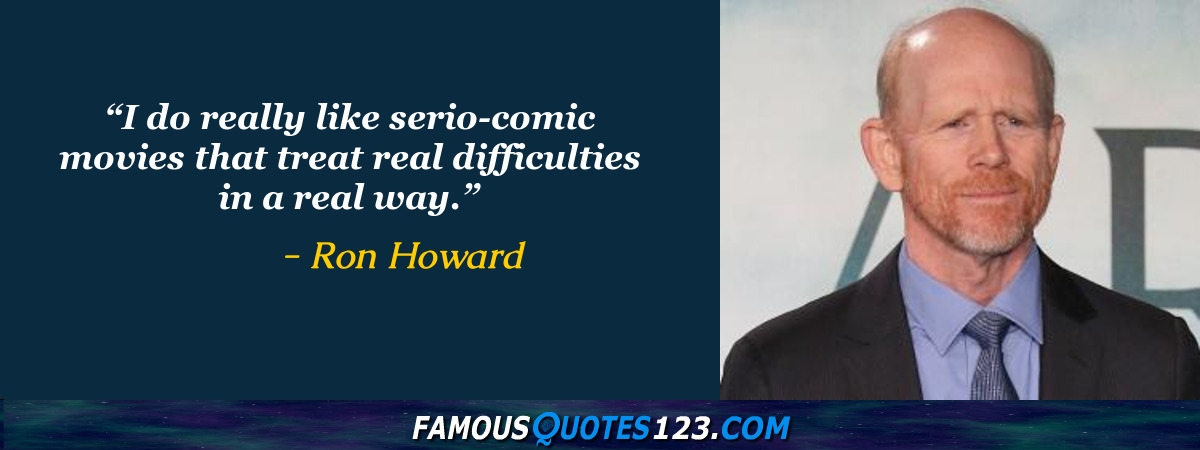
I do really like serio-comic movies that treat real difficulties in a real way.
Early on in my career, when I had basically been a sitcom actor for all of these years, and I made my first movies, and they were comedies, and they were successes, it was very important for me to stretch, and 'Parenthood' was one of those films. Even though it was a comedy, there was a great deal of authentic drama in the piece as well.
I went with a friend to see Frank Sinatra in Las Vegas, in the last year that he was performing. He wasn't necessarily on top form, but the way he could connect with an audience and the way he communicated through the lyrics was something I hadn't ever really seen before.
I developed a theory that, in many ways, the early 'Andy Griffith' episodes especially were an awful lot like a Capra movie. They were a lot like 'Mr. Deeds' or a lot like 'It's a Wonderful Life' in tone and presentation.
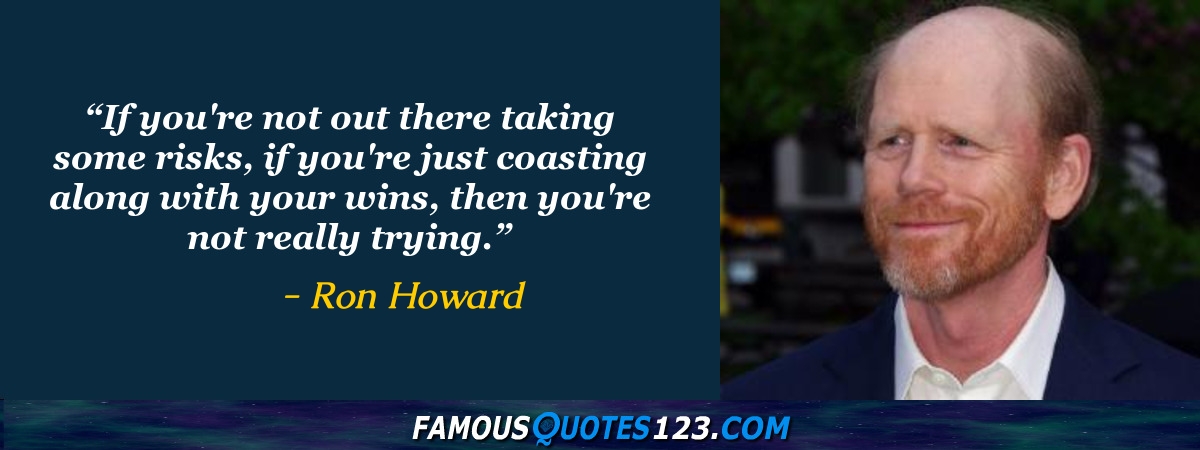
If you're not out there taking some risks, if you're just coasting along with your wins, then you're not really trying.
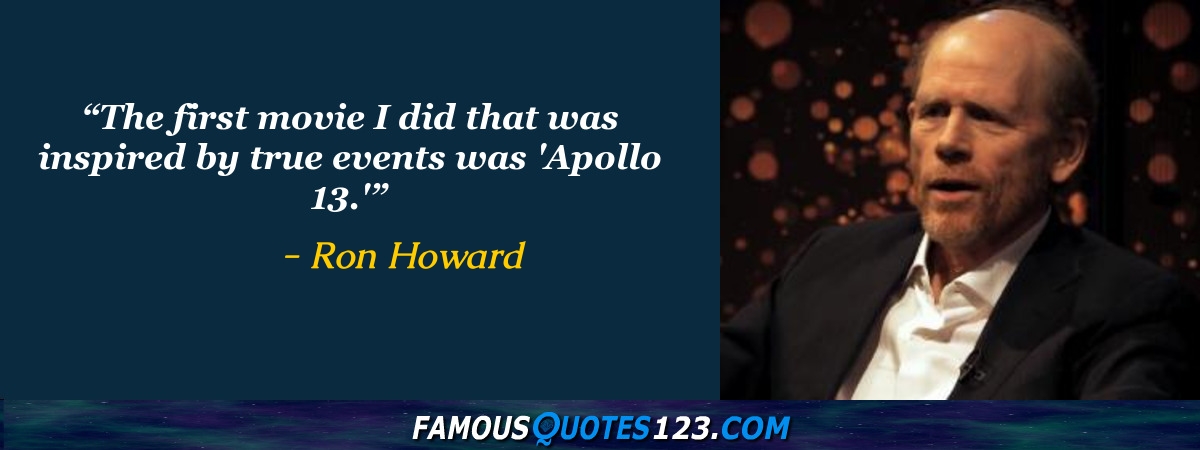
The first movie I did that was inspired by true events was 'Apollo 13.'
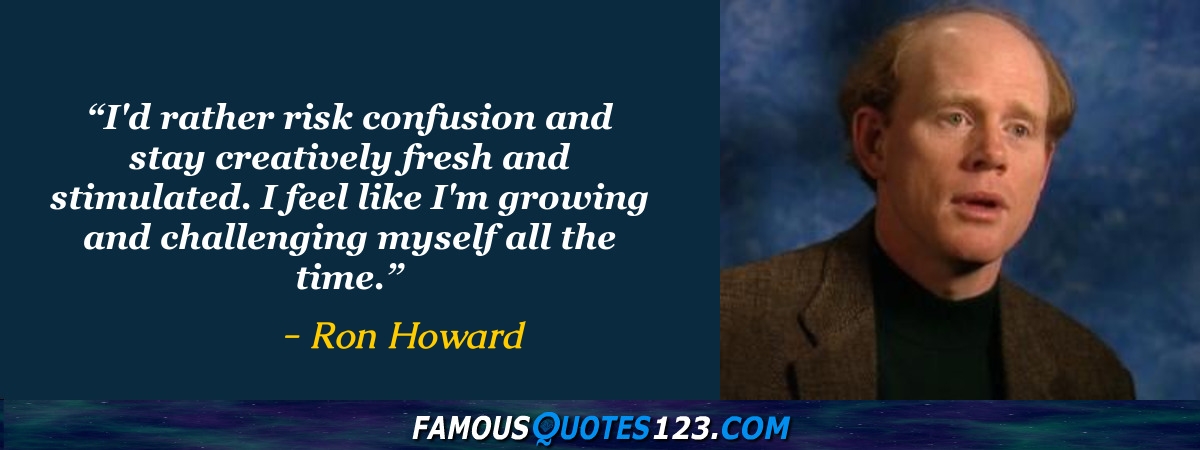
I'd rather risk confusion and stay creatively fresh and stimulated. I feel like I'm growing and challenging myself all the time.
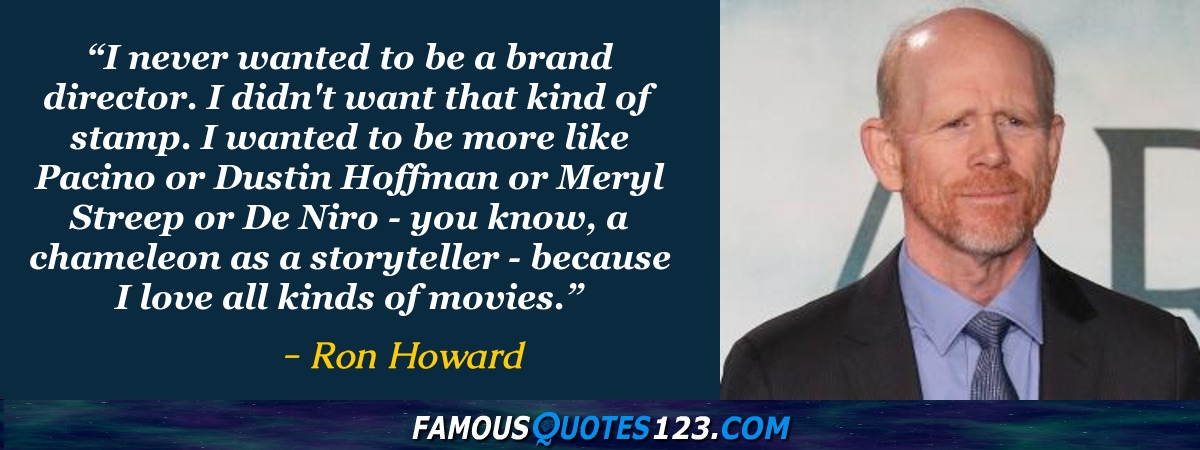
I never wanted to be a brand director. I didn't want that kind of stamp. I wanted to be more like Pacino or Dustin Hoffman or Meryl Streep or De Niro - you know, a chameleon as a storyteller - because I love all kinds of movies.
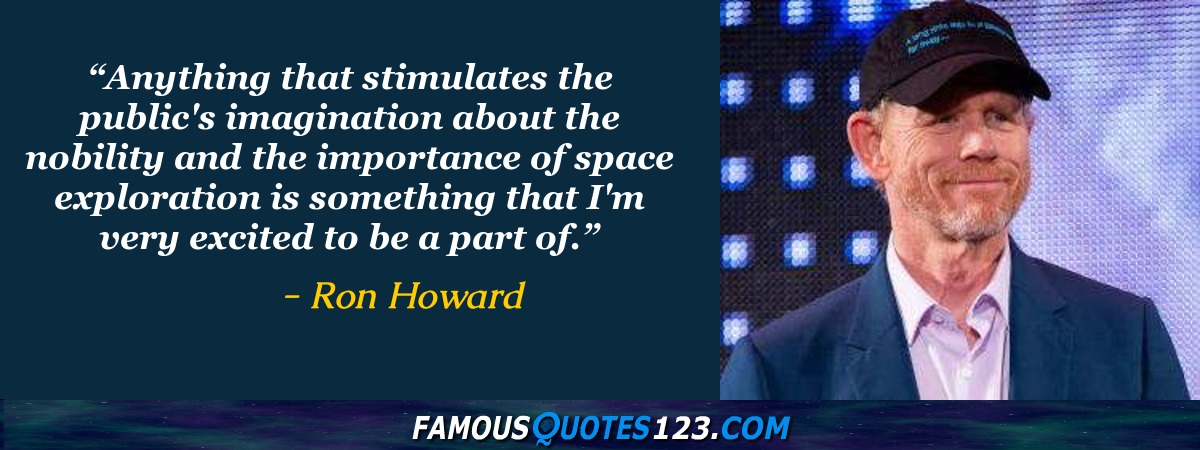
Anything that stimulates the public's imagination about the nobility and the importance of space exploration is something that I'm very excited to be a part of.
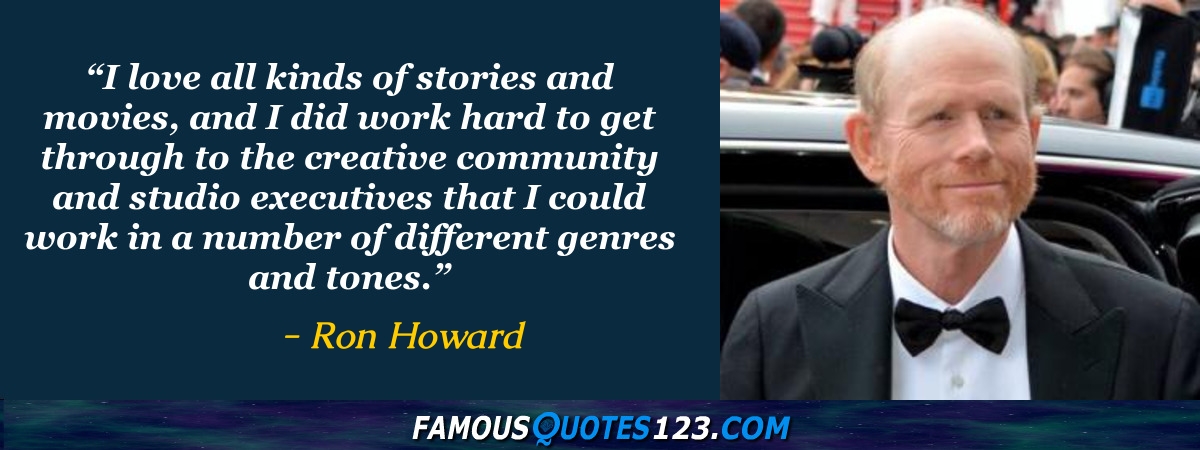
I love all kinds of stories and movies, and I did work hard to get through to the creative community and studio executives that I could work in a number of different genres and tones.
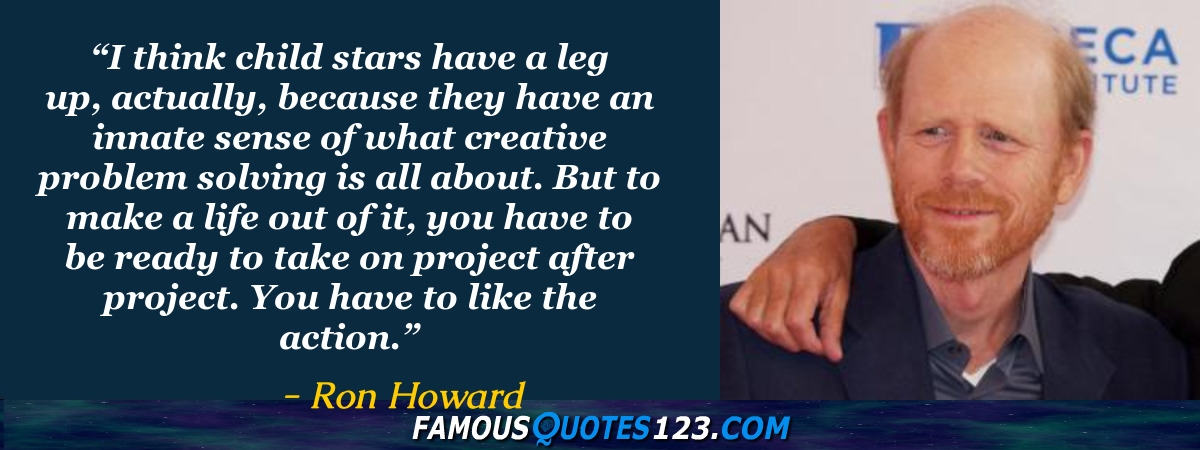
I think child stars have a leg up, actually, because they have an innate sense of what creative problem solving is all about. But to make a life out of it, you have to be ready to take on project after project. You have to like the action.
If you think about it, for almost any moment, any mood that you might be in, there's probably a Beatles song that will address that mood, that feeling, that set of emotions. I don't know that that can be said about very many groups, if any.
I'm not really a sequel guy. I did 'Angels & Demons' after 'The Da Vinci Code,' because I like working with Hanks, and I felt it was a really different sort of world that we were visiting. That was, of itself, interesting.
There's something rare and wonderful that's very particular to television, and it's when a great cast meets a great show runner/creator with the right set of characters to play. That's what happened with 'Arrested Development.' It happens every so often, but all too rarely on TV.
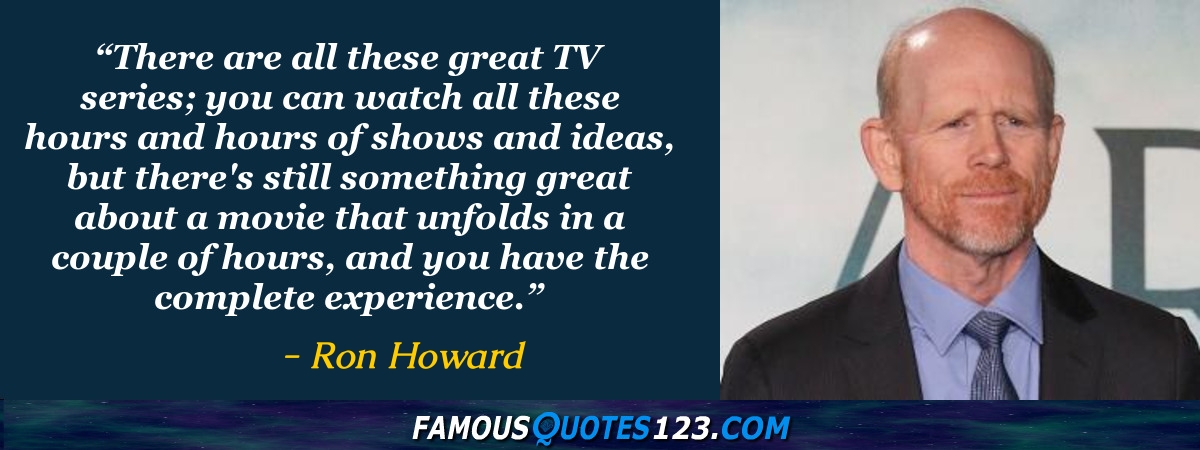
There are all these great TV series; you can watch all these hours and hours of shows and ideas, but there's still something great about a movie that unfolds in a couple of hours, and you have the complete experience.
I was never a comic book guy. I like the movies when I see them, especially the origin stories. I never felt like I could be on the set, at 3 o'clock in the morning, tired, with 10 important decisions to make, and know, intuitively, what the story needs. For me, I'd be copycatting and not inventing. I've never said yes to one.
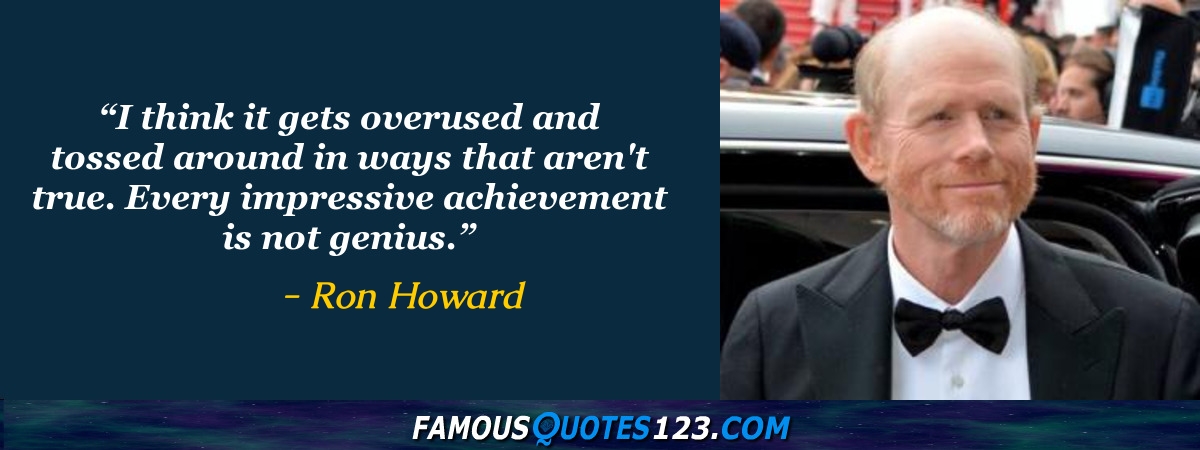
I think it gets overused and tossed around in ways that aren't true. Every impressive achievement is not genius.
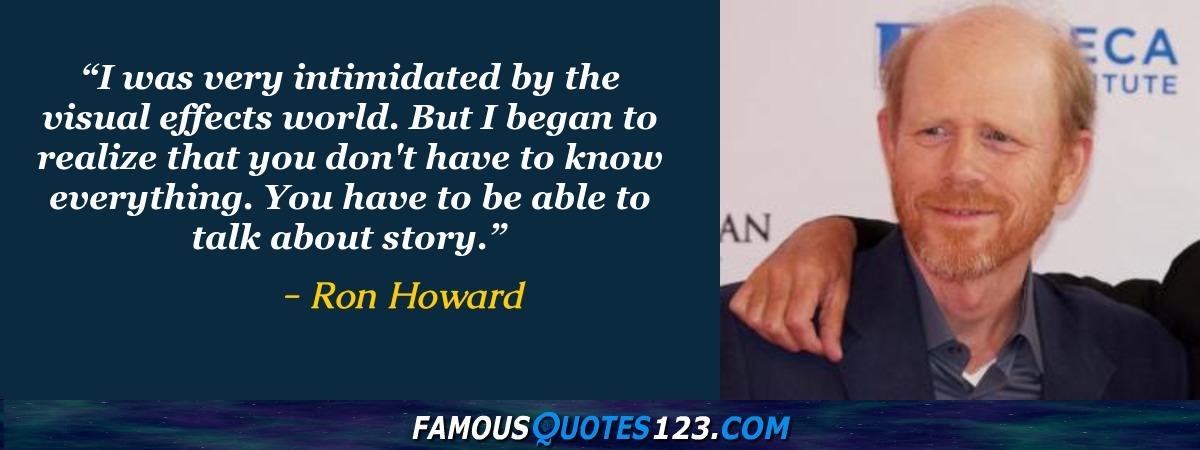
I was very intimidated by the visual effects world. But I began to realize that you don't have to know everything. You have to be able to talk about story.
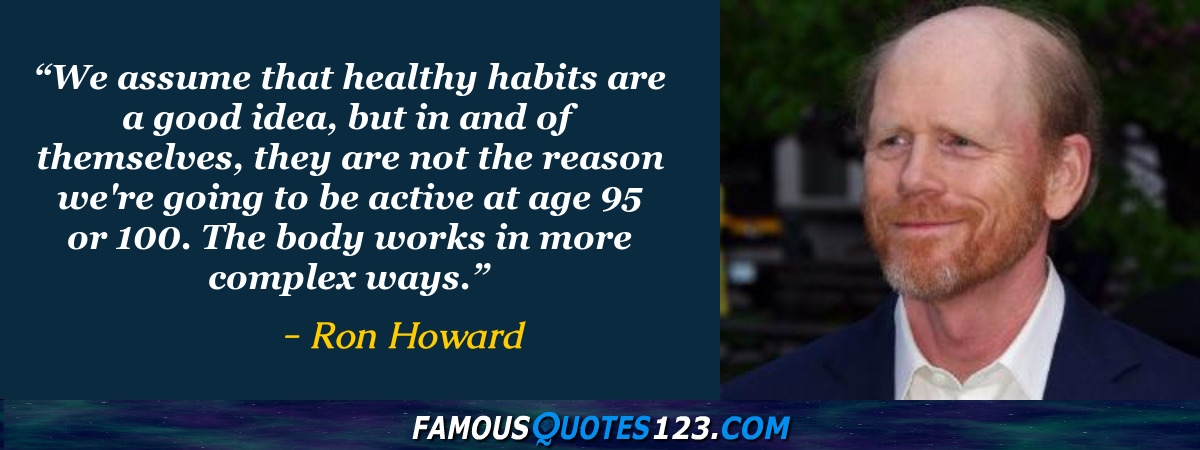
We assume that healthy habits are a good idea, but in and of themselves, they are not the reason we're going to be active at age 95 or 100. The body works in more complex ways.
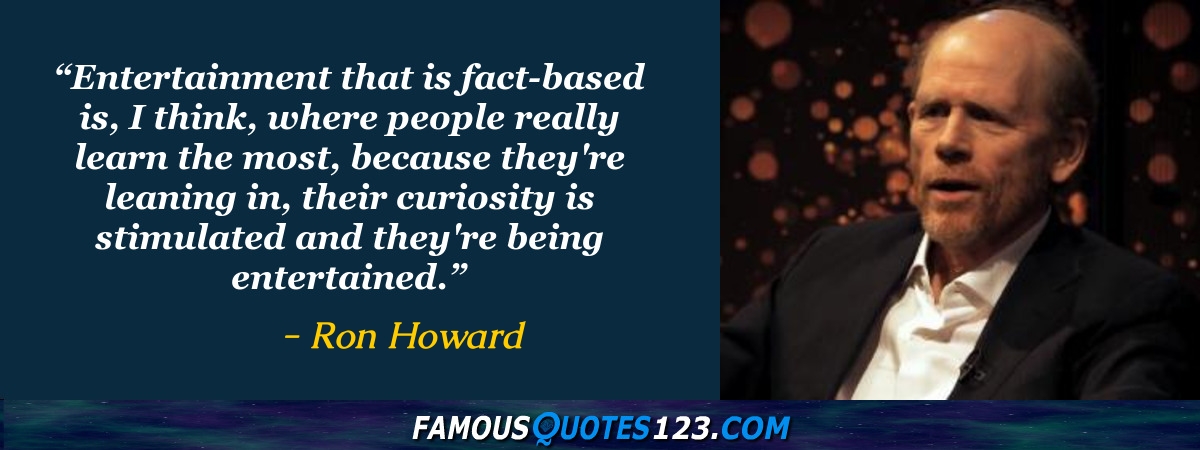
Entertainment that is fact-based is, I think, where people really learn the most, because they're leaning in, their curiosity is stimulated and they're being entertained.
I want every movie to have a big audience. I'm always hopeful that it's going to be discovered, and audiences are fantastic that way because every once in a while they surprise you. I didn't think 'Beautiful Mind' was going to be that kind of global success.
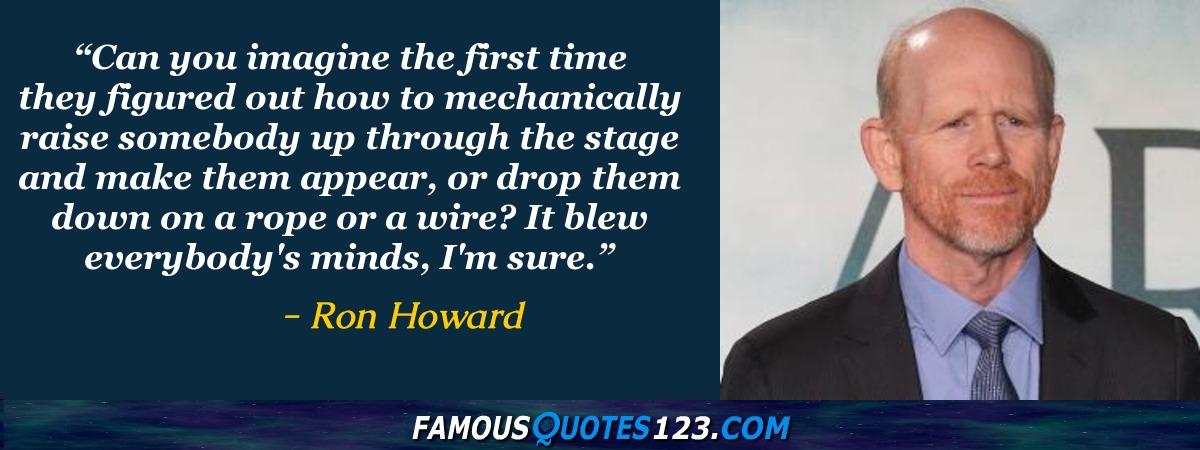
Can you imagine the first time they figured out how to mechanically raise somebody up through the stage and make them appear, or drop them down on a rope or a wire? It blew everybody's minds, I'm sure.
I was a terrible science student, so I could never be a scientist; my mind doesn't work that way. But I've learned to love the stories around science, and I have so much respect and fascination for the people who can make discoveries and find applications. There's a lot of drama there.
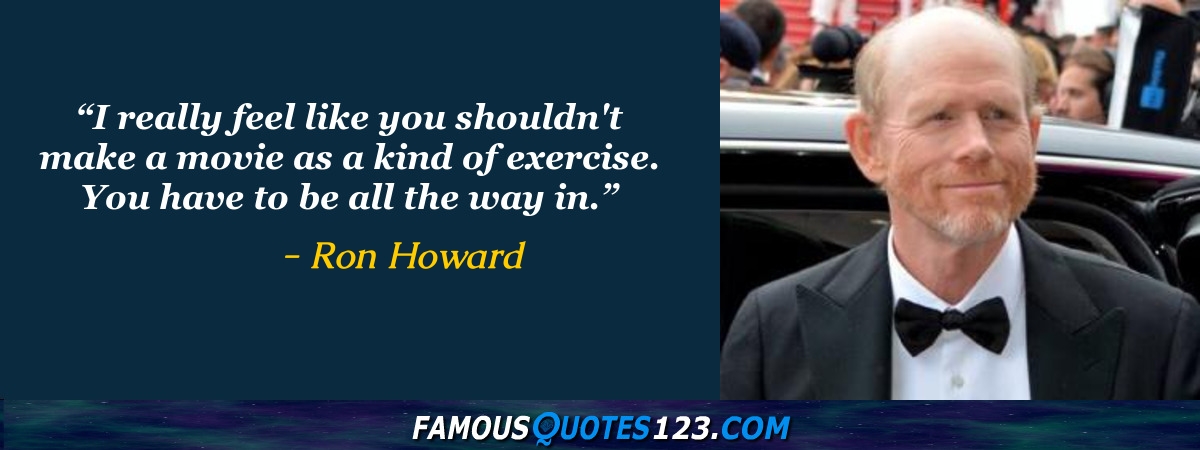
I really feel like you shouldn't make a movie as a kind of exercise. You have to be all the way in.
My folks met at the University of Oklahoma, in the theater department in the 1940s. They were married touring the country in 'Cinderella' and 'Snow White.' My mother was married in Cinderella's costume; the dwarves were the best men.
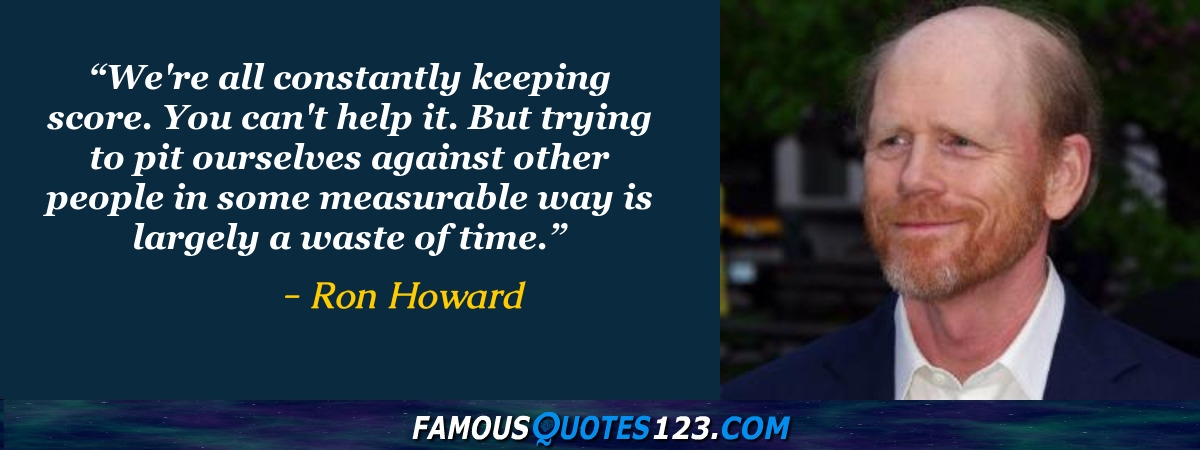
We're all constantly keeping score. You can't help it. But trying to pit ourselves against other people in some measurable way is largely a waste of time.
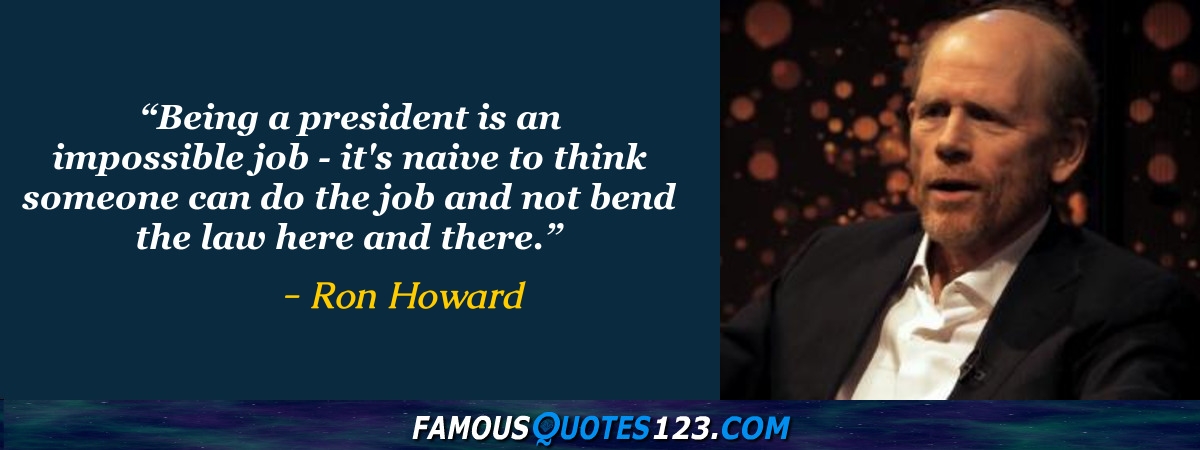
Being a president is an impossible job - it's naive to think someone can do the job and not bend the law here and there.
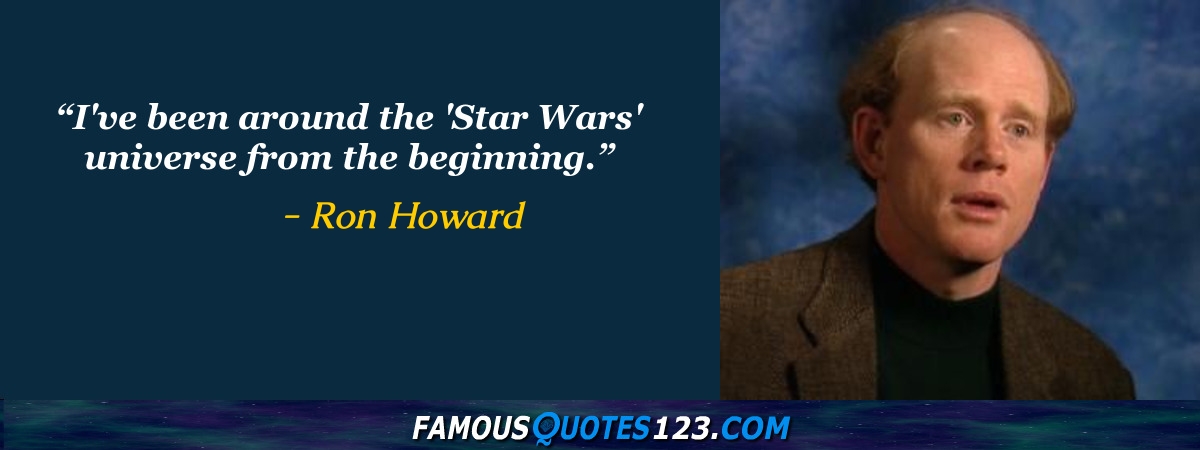
I've been around the 'Star Wars' universe from the beginning.
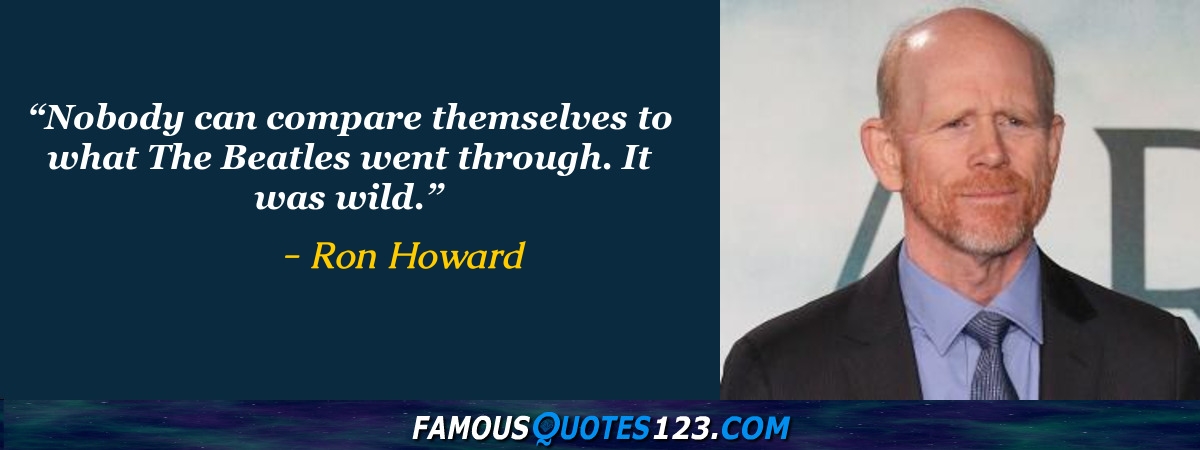
Nobody can compare themselves to what The Beatles went through. It was wild.
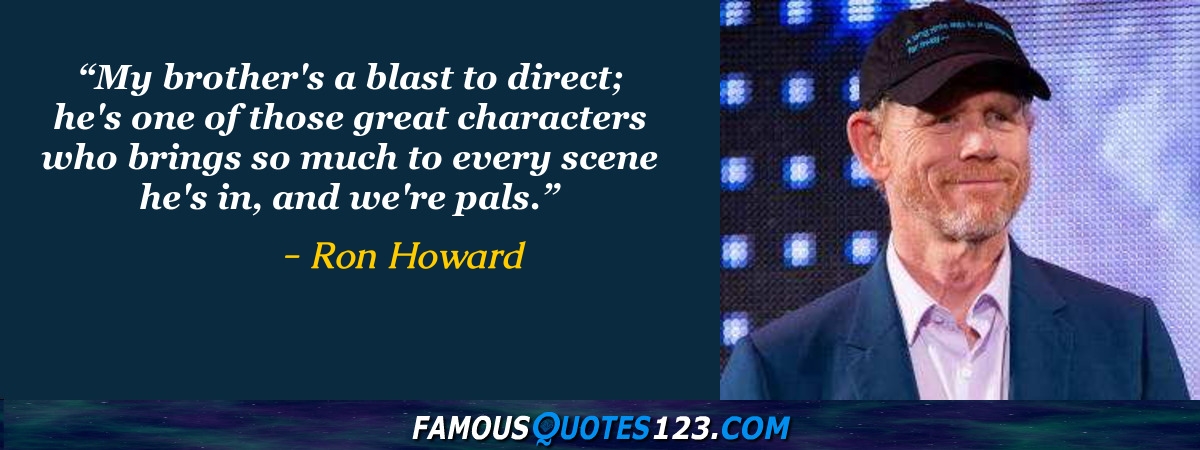
My brother's a blast to direct; he's one of those great characters who brings so much to every scene he's in, and we're pals.
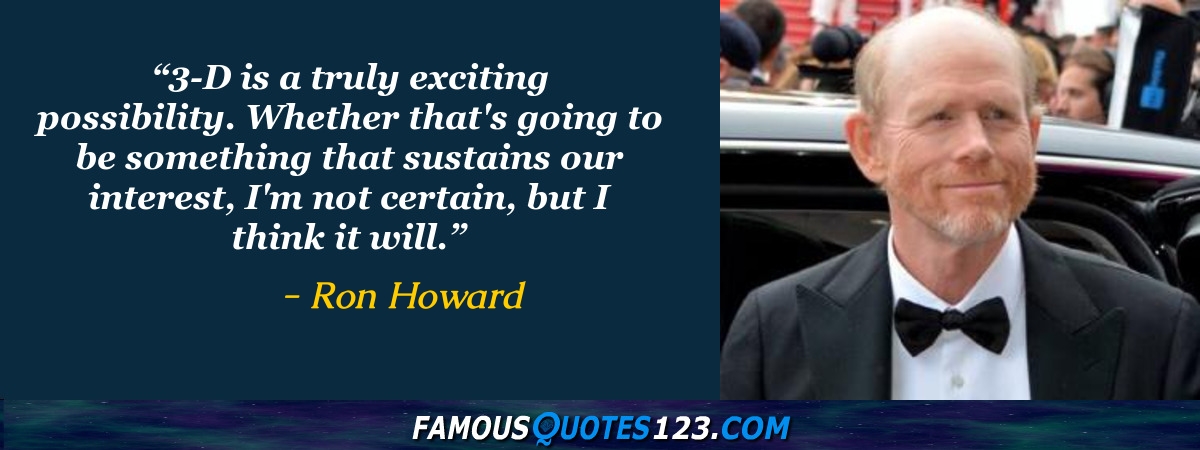
3-D is a truly exciting possibility. Whether that's going to be something that sustains our interest, I'm not certain, but I think it will.
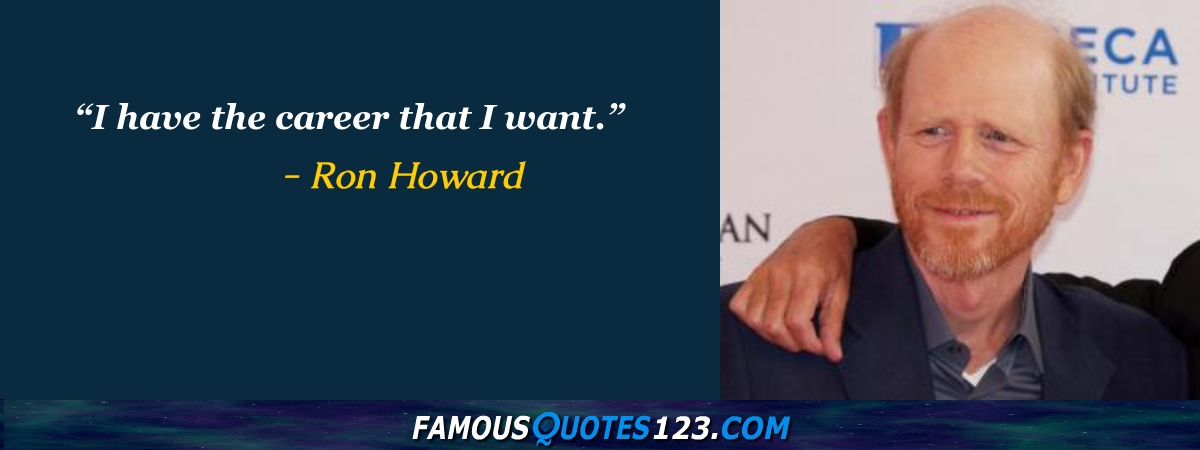
I have the career that I want.
In the research I did for 'Apollo,' there was never a moment's hesitation by anyone that we would do anything other than save these guys, until every resource, every ounce of energy was spent. And I'm very proud of that aspect of our culture.
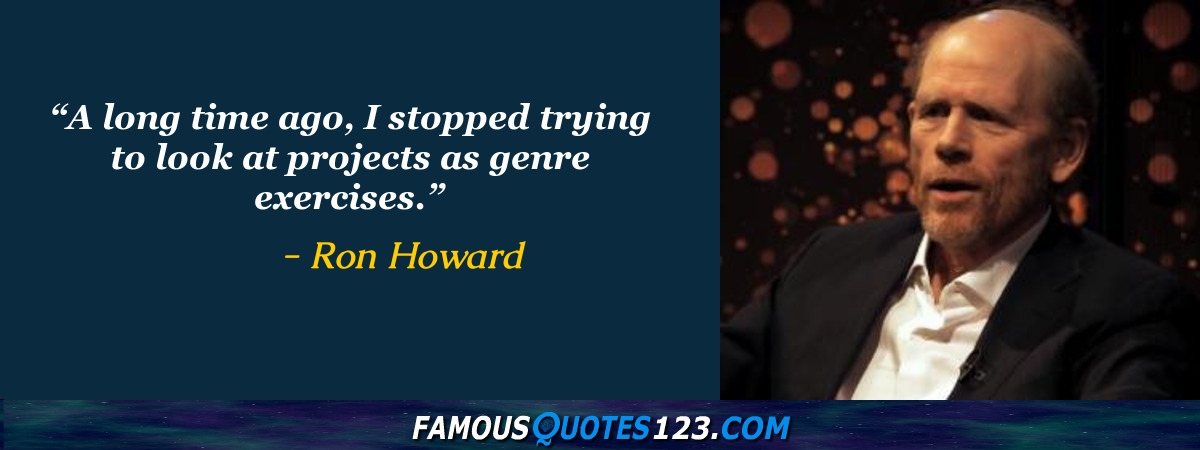
A long time ago, I stopped trying to look at projects as genre exercises.
The hardest thing which I've experienced is calling up my father, Rance Howard, who's a wonderful actor, and telling him I've had to cut him out of the movie, which I've had to do twice. That's a lump-in-the-throat phone call.
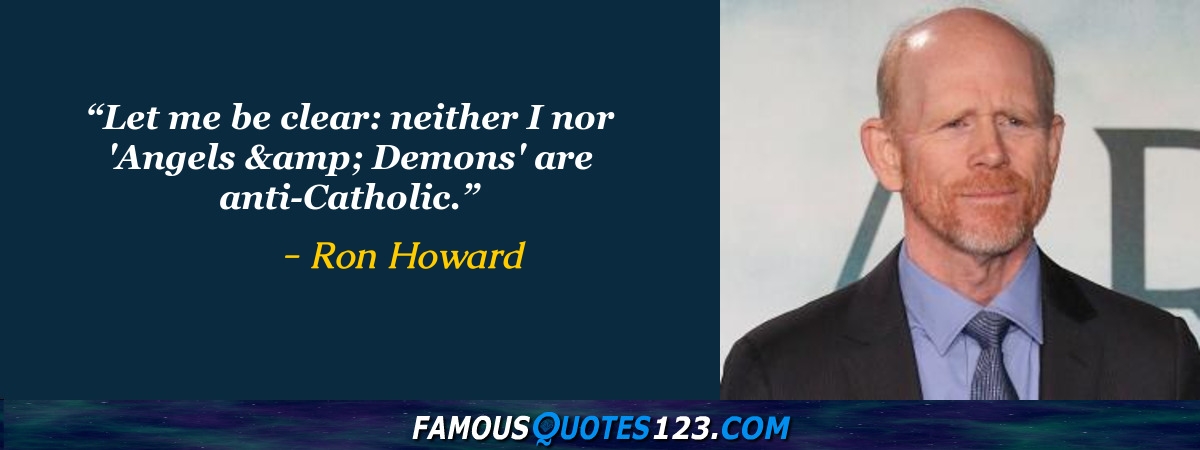
Let me be clear: neither I nor 'Angels & Demons' are anti-Catholic.
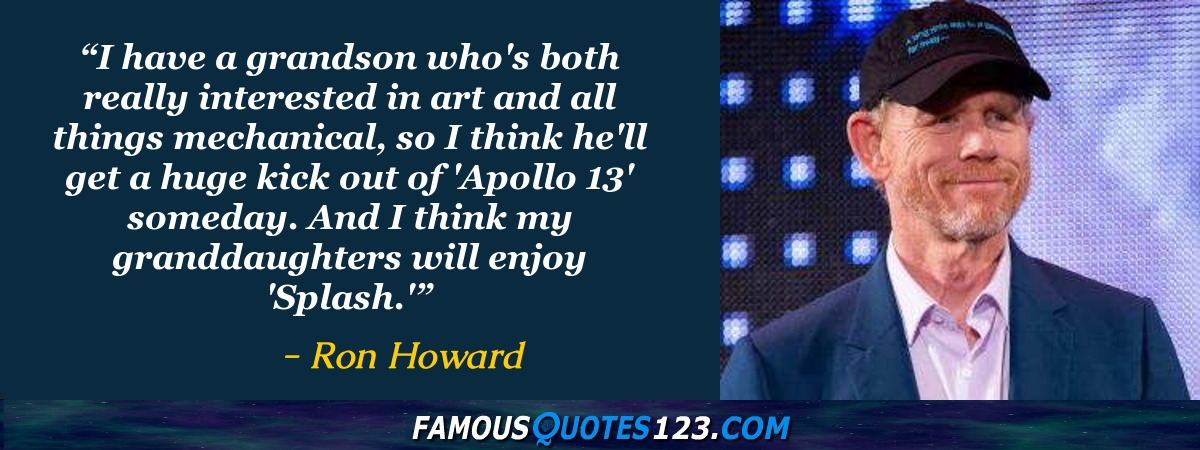
I have a grandson who's both really interested in art and all things mechanical, so I think he'll get a huge kick out of 'Apollo 13' someday. And I think my granddaughters will enjoy 'Splash.'
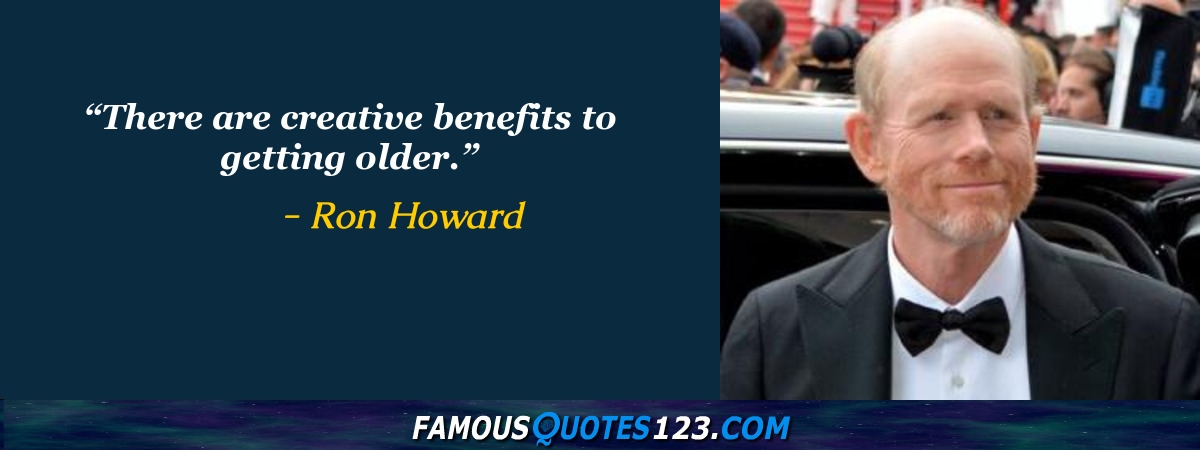
There are creative benefits to getting older.
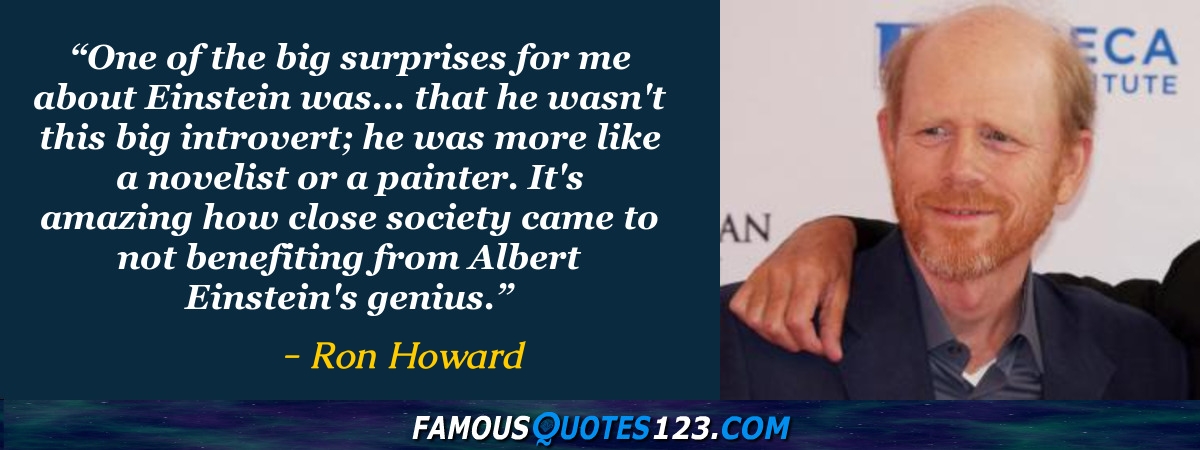
One of the big surprises for me about Einstein was... that he wasn't this big introvert; he was more like a novelist or a painter. It's amazing how close society came to not benefiting from Albert Einstein's genius.
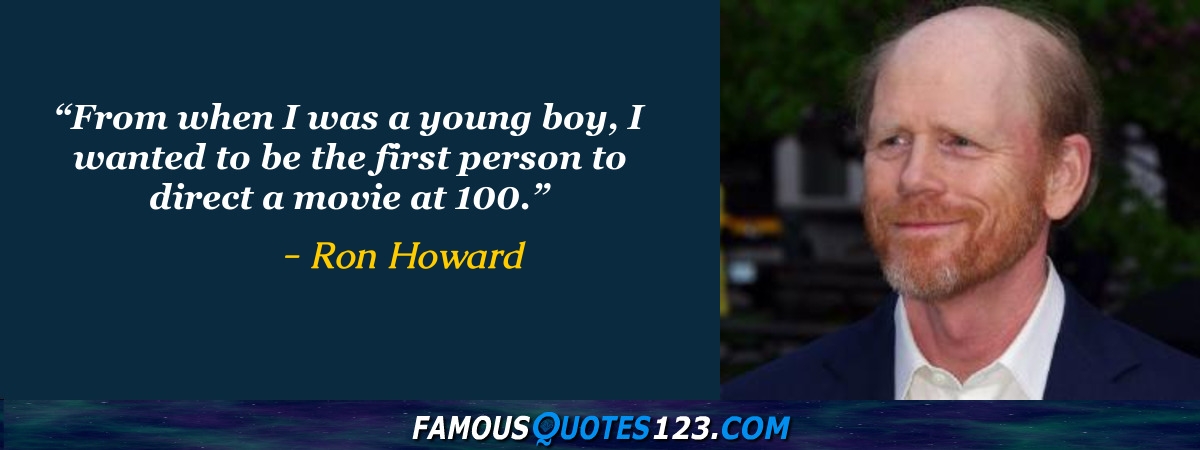
From when I was a young boy, I wanted to be the first person to direct a movie at 100.
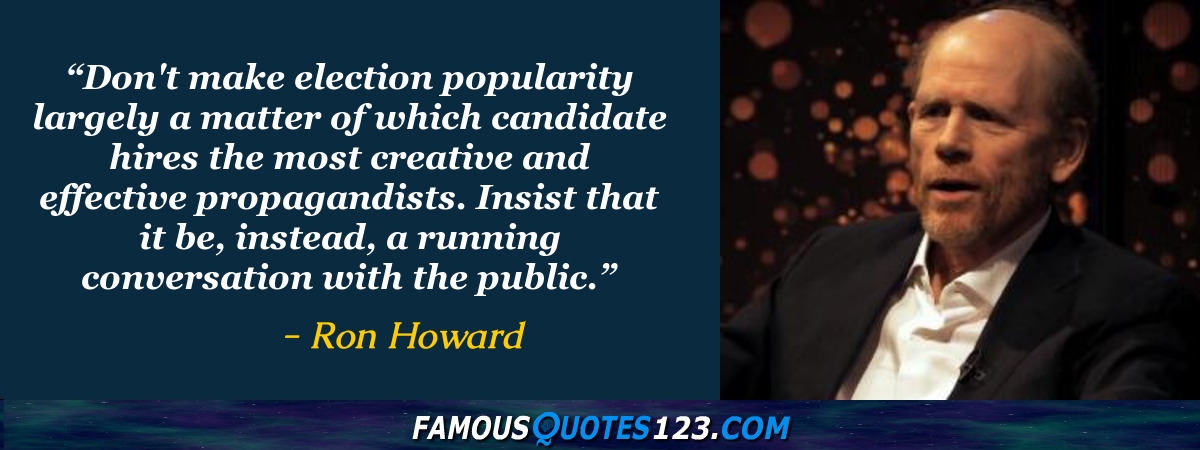
Don't make election popularity largely a matter of which candidate hires the most creative and effective propagandists. Insist that it be, instead, a running conversation with the public.
I believe in the imperative to explore, so any project that I can be involved with that celebrates that, and expands people's imagination around that idea of pushing out, is one of the most positive things that I think I could be involved with.
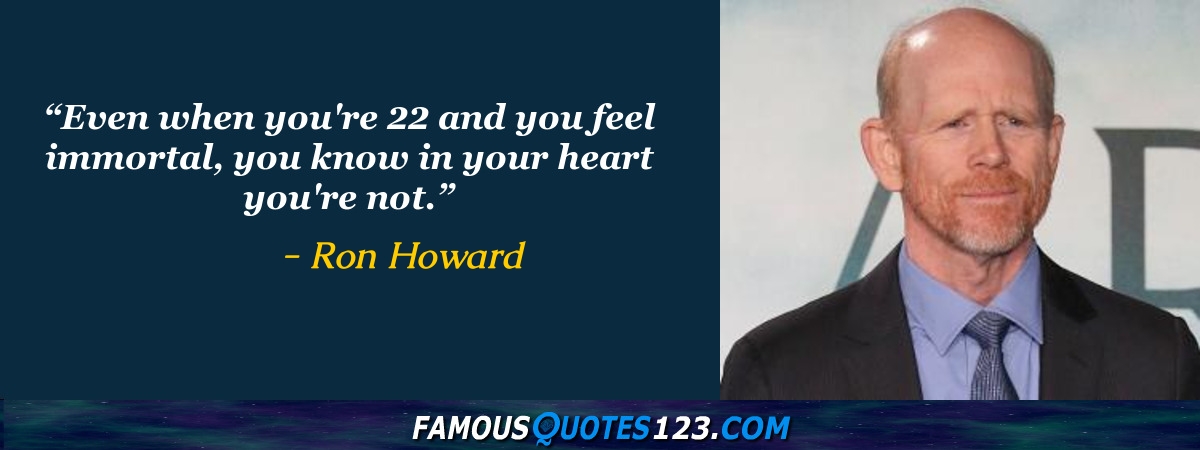
Even when you're 22 and you feel immortal, you know in your heart you're not.
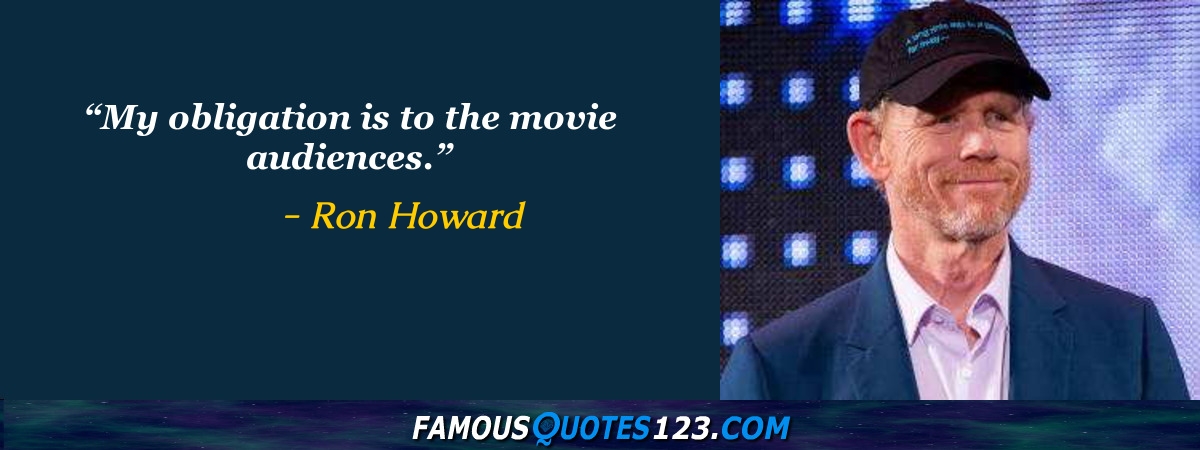
My obligation is to the movie audiences.
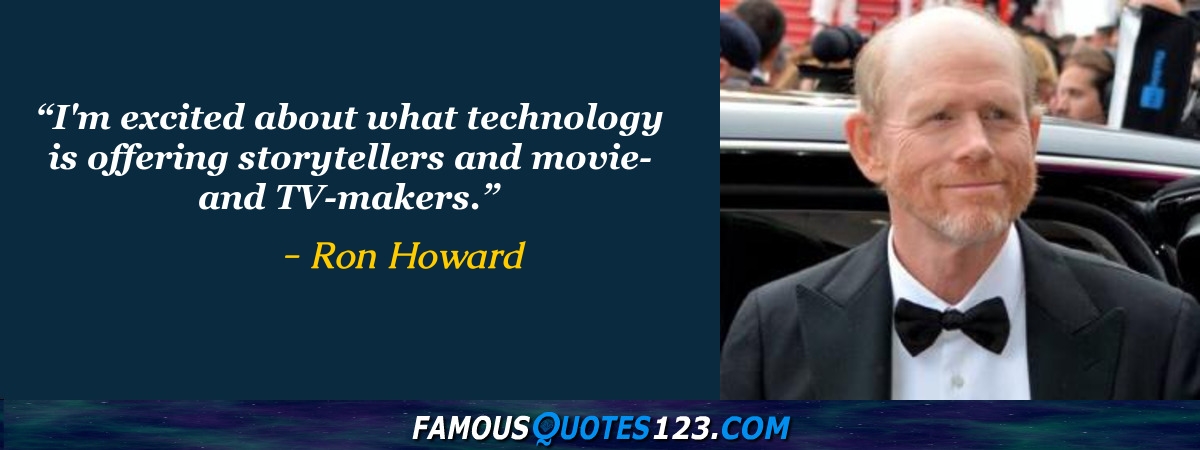
I'm excited about what technology is offering storytellers and movie- and TV-makers.
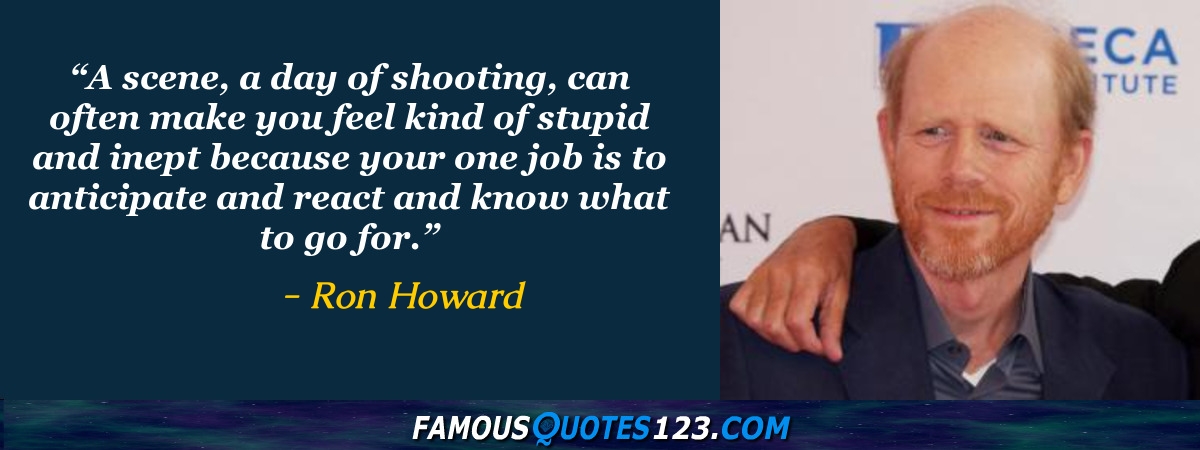
A scene, a day of shooting, can often make you feel kind of stupid and inept because your one job is to anticipate and react and know what to go for.
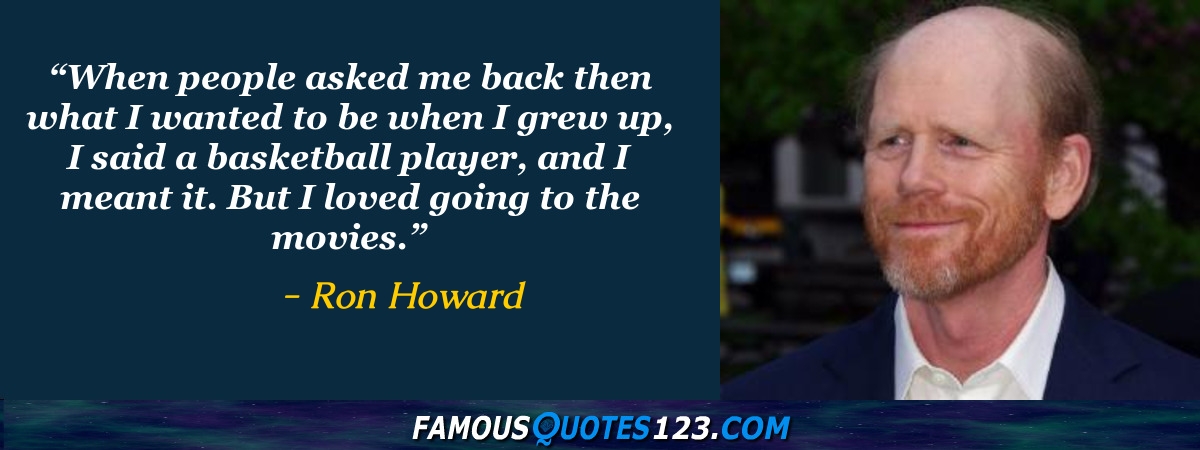
When people asked me back then what I wanted to be when I grew up, I said a basketball player, and I meant it. But I loved going to the movies.
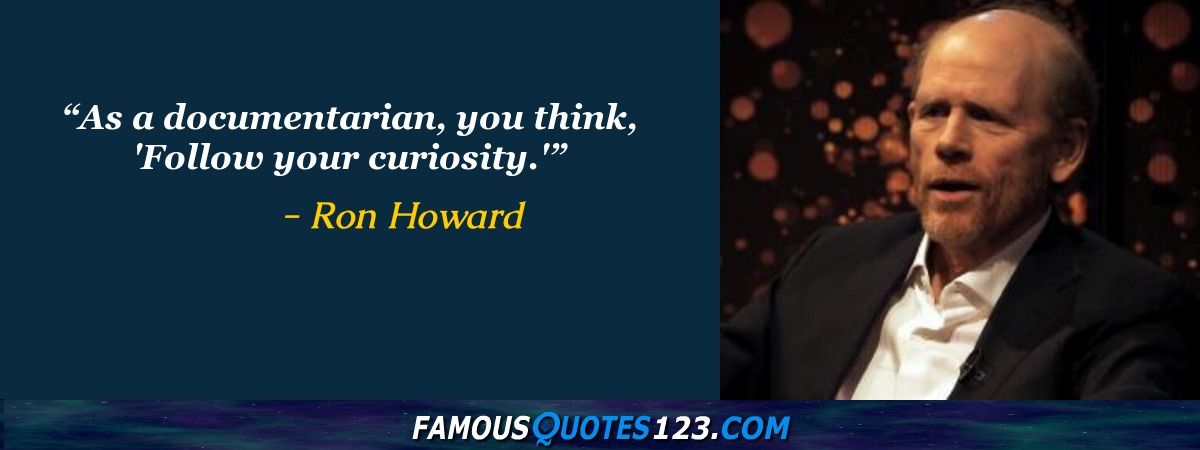
As a documentarian, you think, 'Follow your curiosity.'
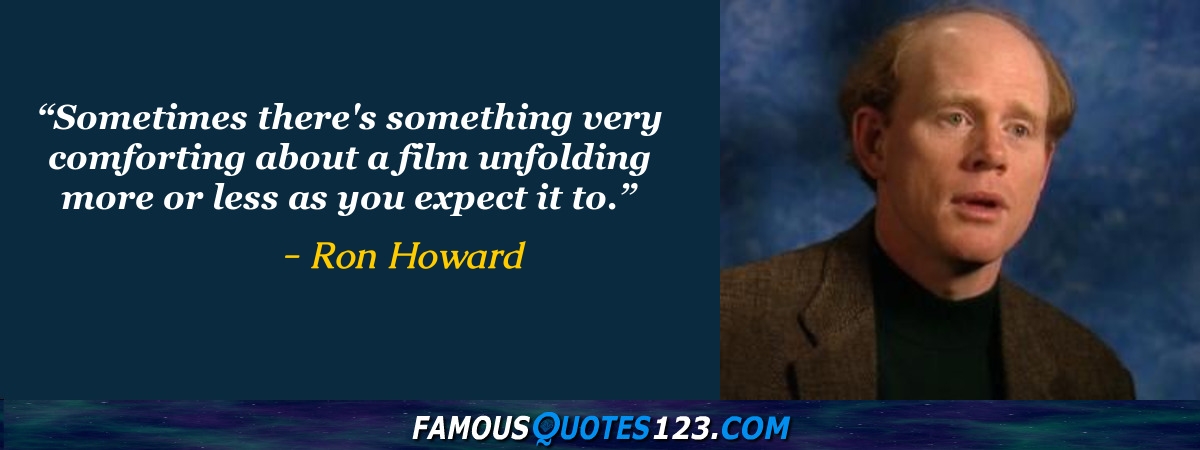
Sometimes there's something very comforting about a film unfolding more or less as you expect it to.
I've been around a lot of artists who are also good at business, and... one minute they'll sound like an artist, and the next minute, they'll sound like the characters in 'Mad Men.' Jay-Z's a very good businessman, and he talks about it and enjoys it, but he doesn't shift.
When I occasionally indulge in sort of a 'look back' at highlights, it's so interesting - it almost never comes from an image on a set or even the Academy Awards. It's almost always a family trip or meeting and falling in love with Cheryl.
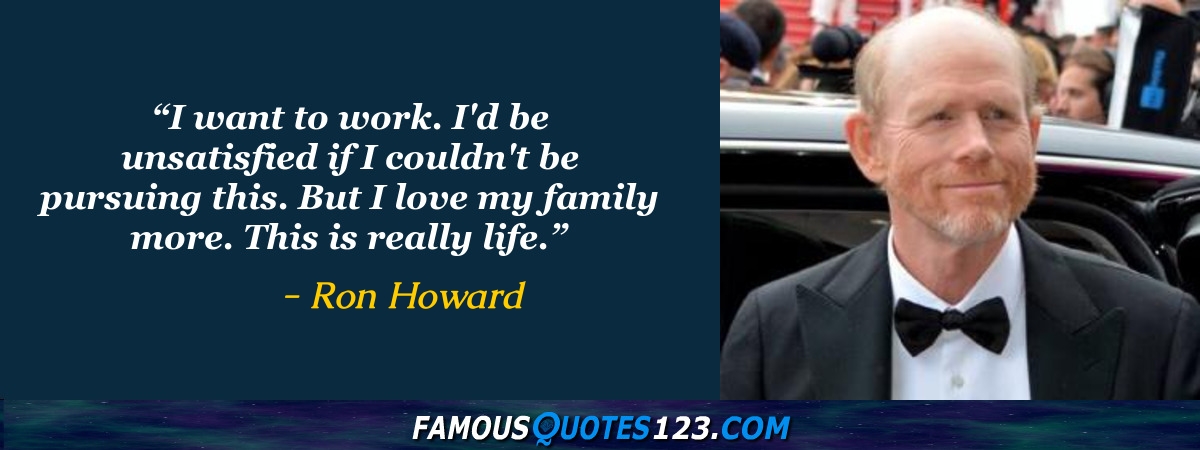
I want to work. I'd be unsatisfied if I couldn't be pursuing this. But I love my family more. This is really life.
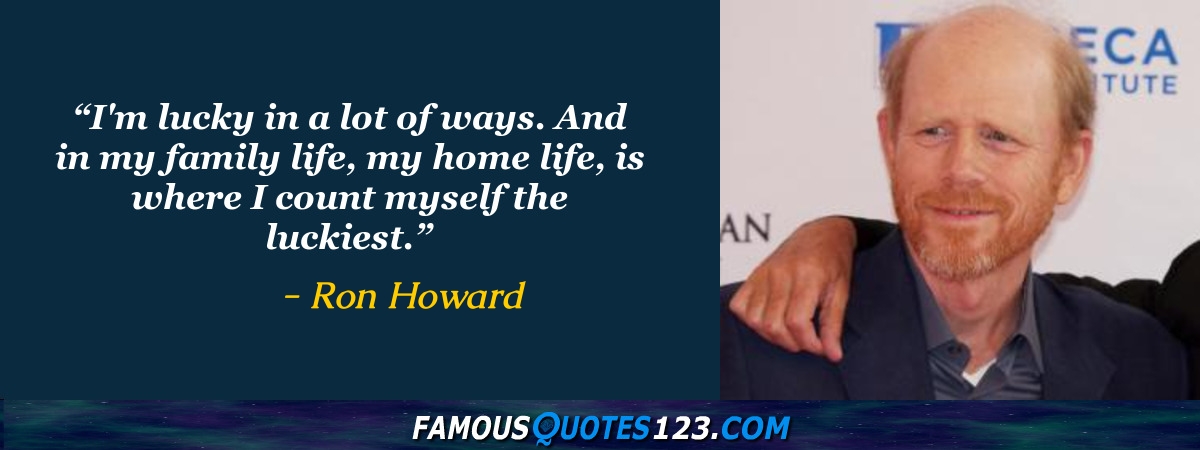
I'm lucky in a lot of ways. And in my family life, my home life, is where I count myself the luckiest.
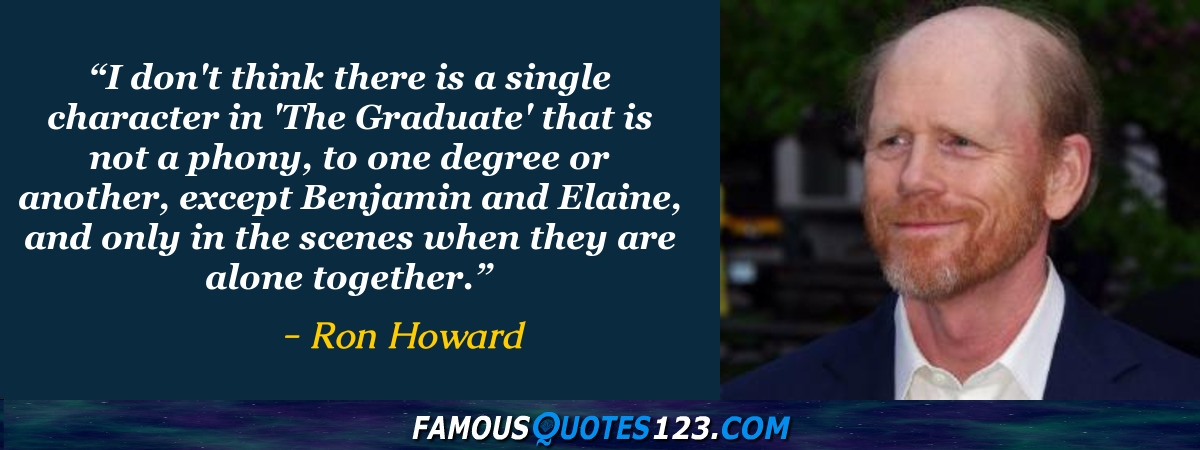
I don't think there is a single character in 'The Graduate' that is not a phony, to one degree or another, except Benjamin and Elaine, and only in the scenes when they are alone together.
When I realized that my big dream was going to come true - 'Night Shift' was a success, 'Splash' was a success, I got the job to do 'Cocoon' - suddenly, I was underway. And I knew my name was rising up the lists. I was going to have a career. I was going to be able to direct movies until I screwed it up.